Cardiovascular Disease
How to submit an article:
- Registered users can submit any published journal article that has a unique DOI (Digital Object Identifier) name or link to Research Hub.
- For example, you can paste the full DOI link:
https://doi.org/10.1109/5.771073or just the DOI name:10.1109/5.771073into the field above and click submit. - The person who is first to submit a valid article to Research Hub will forever be credited for it, and every article submission earns you +6 Research Points.
Sub-Topics:
Related Topics
Published research studies are articles that present the findings of original research that has undergone a peer-review process and has been made publicly available in scholarly journals, books or other media.
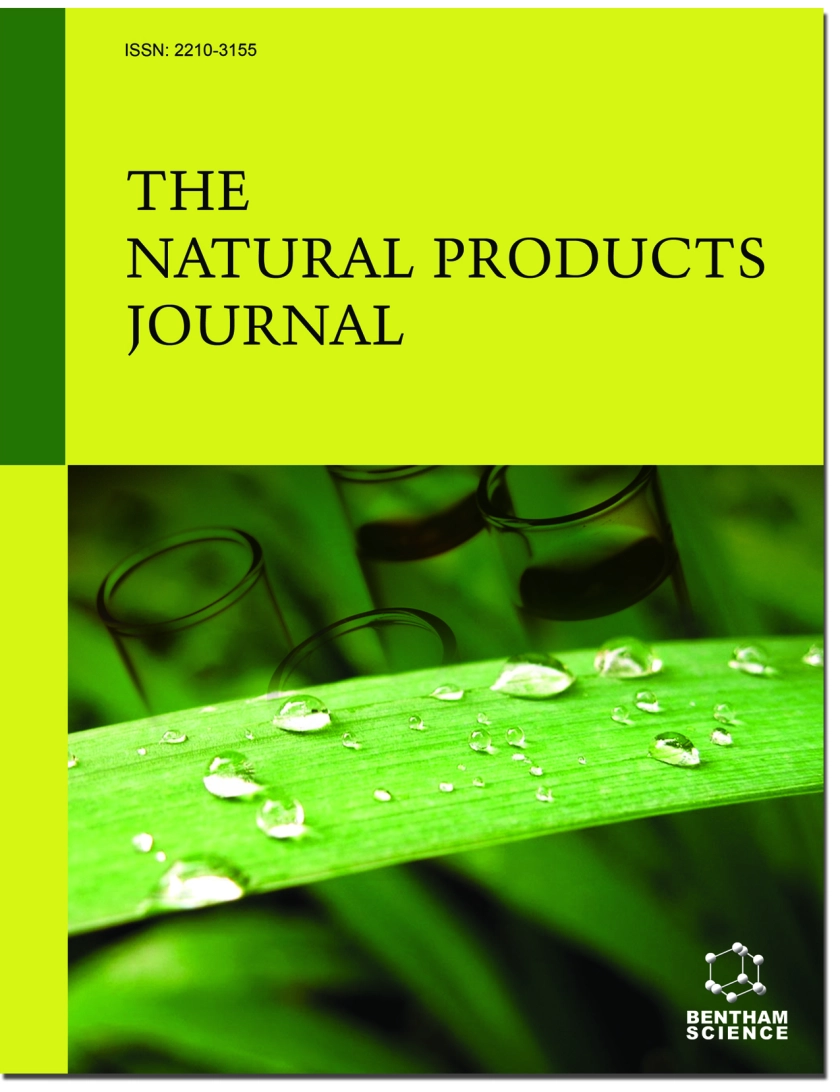
Pumpkin Seeds (Cucurbita spp.) as a Nutraceutical Used In Various Lifestyle Disorders
2024 Feb The Natural Products Journal Wal A, Singh MR, Gupta A, Rathore S, Rout RR, Wal P
Review Article Anticancer Blood Sugar Pumpkin Seed Antioxidant Cardiovascular Disease Depression Anti-ParasitePumpkin seeds are recognised for their medicinal, nutritional, and cosmetic benefits, including anti-diabetic, heart disease prevention, anti-cancer, and antioxidant qualities.

Peanut (Arachis hypogaea L.) seeds and by-products in metabolic syndrome and cardiovascular disorders: A systematic review of clinical studies
2024 Jan Phytomedicine Nunes YC, Santos GO, Machado NM, Otoboni AMMB, Laurindo LF, Bishayee A, et al.
Peanuts and their products, containing phytochemicals, can improve metabolic parameters and have the potential to be used as a sustainable and low-cost alternative for the prevention and treatment of MetS and CVD.
Systematic Review Review Article Peanut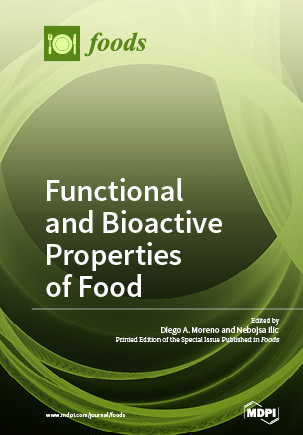
A Literature Review of the Pharmacological Effects of Jujube
2024 Jan 06 Foods Zhu D, Jiang N, Wang N, Zhao Y, Liu X
Review Article Cardiovascular Disease Neuroprotective JujubeJujube, a Chinese native plant with numerous active components, exhibits calming effects, nourishes blood, and strengthens the spleen and stomach, alongside promising neuroprotective and cardiovascular benefits.
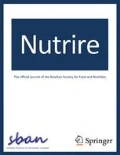
Nutritional and health-beneficial values of almond nuts consumption
2023 Nov 02 Nutrire Ouzir M
Review Article Cardiovascular Disease Cognitive Function Almond Type 2 Diabetes ObesityAlmond consumption has beneficial impacts on cardiovascular diseases, diabetes, obesity, and it can improve cognitive performance and protect against skin aging.
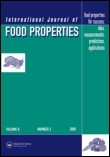
A comprehensive review on the availability of bioactive compounds, phytochemicals, and antioxidant potential of plum ( Prunus Domestica )
2023 Aug 23 International Journal of Food Properties Ayub H, Nadeem M, Mohsin M, Ambreen S, Khan F, Oranab S, et al.
Review Article Bone Health Blood Sugar Antioxidant PlumPlums, which are rich in bioactive compounds, antioxidants, and vitamins, can help maintain blood glucose level, bone health, heart health and even treat certain cancers.
Research insights are moderated by the Research Hub team and offer an at-a-glance overview of interesting research findings.

2024 The Natural Products Journal
Pumpkin seeds are recognised for their medicinal, nutritional, and cosmetic benefits, including anti-diabetic, heart disease prevention, anti-cancer, and antioxidant qualities.
Review Article Anti-Parasite Anticancer Antioxidant Blood Sugar Depression
Pumpkin Seeds (Cucurbita spp.) as a Nutraceutical Used In Various Lifestyle
Disorders
Wal A, Singh MR, Gupta A, Rathore S, Rout RR, Wal P

2024 Foods
Jujube, a Chinese native plant with numerous active components, exhibits calming effects, nourishes blood, and strengthens the spleen and stomach, alongside promising neuroprotective and cardiovascular benefits.
Review Article Jujube Neuroprotective
A Literature Review of the Pharmacological Effects of Jujube
Zhu D, Jiang N, Wang N, Zhao Y, Liu X

2023 Nutrire
Almond consumption has beneficial impacts on cardiovascular diseases, diabetes, obesity, and it can improve cognitive performance and protect against skin aging.
Review Article Almond Cognitive Function Obesity Type 2 Diabetes
Nutritional and health-beneficial values of almond nuts consumption
Ouzir M

2023 International Journal of Food Properties
Plums, which are rich in bioactive compounds, antioxidants, and vitamins, can help maintain blood glucose level, bone health, heart health and even treat certain cancers.
Review Article Antioxidant Blood Sugar Bone Health Plum
A comprehensive review on the availability of bioactive compounds, phytochemicals, and antioxidant potential of plum (
Prunus Domestica
)
Ayub H, Nadeem M, Mohsin M, Ambreen S, Khan F, Oranab S, et al.

2023 Nutrients
Natural calcium-rich mineral waters offer a bioavailable calcium source, beneficial for bone health, cardiovascular function, weight management, and overall well-being.
Systematic Review Bone Health Calcium High Blood Pressure Mineral Water Natural Calcium-rich mineral water
Exploring the Potential Benefits of Natural Calcium-Rich Mineral Waters for Health and Wellness: A Systematic Review
Pop MS, Cheregi DC, Onose G, Munteanu C, Popescu C, Rotariu M, et al.
Review Articles
Review articles summarise and critically evaluate the current state of research on a specific topic or field by synthesising multiple primary research studies.

Pumpkin Seeds (Cucurbita spp.) as a Nutraceutical Used In Various Lifestyle Disorders
2024 Feb The Natural Products Journal Wal A, Singh MR, Gupta A, Rathore S, Rout RR, Wal P
Review Article Anticancer Blood Sugar Pumpkin Seed Antioxidant Cardiovascular Disease Depression Anti-ParasitePumpkin seeds are recognised for their medicinal, nutritional, and cosmetic benefits, including anti-diabetic, heart disease prevention, anti-cancer, and antioxidant qualities.

Peanut (Arachis hypogaea L.) seeds and by-products in metabolic syndrome and cardiovascular disorders: A systematic review of clinical studies
2024 Jan Phytomedicine Nunes YC, Santos GO, Machado NM, Otoboni AMMB, Laurindo LF, Bishayee A, et al.
Peanuts and their products, containing phytochemicals, can improve metabolic parameters and have the potential to be used as a sustainable and low-cost alternative for the prevention and treatment of MetS and CVD.
Systematic Review Review Article Peanut
A Literature Review of the Pharmacological Effects of Jujube
2024 Jan 06 Foods Zhu D, Jiang N, Wang N, Zhao Y, Liu X
Review Article Cardiovascular Disease Neuroprotective JujubeJujube, a Chinese native plant with numerous active components, exhibits calming effects, nourishes blood, and strengthens the spleen and stomach, alongside promising neuroprotective and cardiovascular benefits.

Nutritional and health-beneficial values of almond nuts consumption
2023 Nov 02 Nutrire Ouzir M
Review Article Cardiovascular Disease Cognitive Function Almond Type 2 Diabetes ObesityAlmond consumption has beneficial impacts on cardiovascular diseases, diabetes, obesity, and it can improve cognitive performance and protect against skin aging.

A comprehensive review on the availability of bioactive compounds, phytochemicals, and antioxidant potential of plum ( Prunus Domestica )
2023 Aug 23 International Journal of Food Properties Ayub H, Nadeem M, Mohsin M, Ambreen S, Khan F, Oranab S, et al.
Review Article Bone Health Blood Sugar Antioxidant PlumPlums, which are rich in bioactive compounds, antioxidants, and vitamins, can help maintain blood glucose level, bone health, heart health and even treat certain cancers.
Clinical Trials
Clinical trials are research studies that involve people and are conducted to evaluate the safety and efficacy of new treatments or interventions, such as drugs, medical devices, or behavioural therapies.
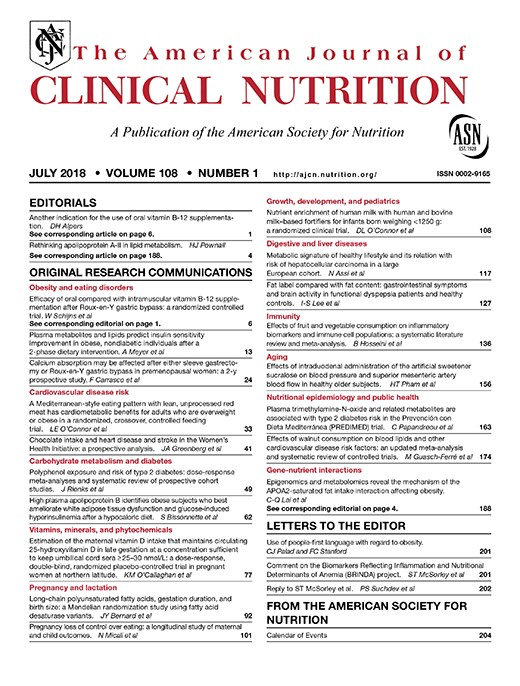
Wild blueberry (poly)phenols can improve vascular function and cognitive performance in healthy older individuals: a double-blind randomized controlled trial
2023 Jun The American Journal of Clinical Nutrition Wood E, Hein S, Mesnage R, Fernandes F, Abhayaratne N, Xu Y, et al.
Randomised Controlled Trial Cognitive Function Blueberry High Blood Pressure Cardiovascular DiseaseConsumption of blueberry powder daily improves vascular function, cognitive abilities, and reduces blood pressure in healthy older individuals.
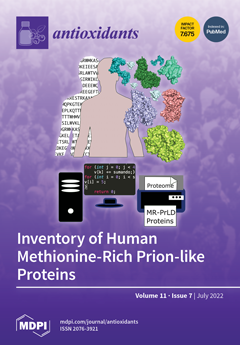
Urinary Phenolic Metabolites Associated with Peanut Consumption May Have a Beneficial Impact on Vascular Health Biomarkers
2023 Mar 11 Antioxidants Parilli-Moser I, Domínguez-López I, Vallverdú-Queralt A, Hurtado-Barroso S, Lamuela-Raventós R
Consumers of SRP and PB exhibited significantly higher excretion of specific UPMs, including enterodiol glucuronide, 3-hydroxybenzoic acid, vanillic acid sulfate, p-coumaric acid, coumaric acid glucuronide I and II, and isoferulic acid, compared to the control group. The peanut interventions also led to an improvement in prostacyclin I2 (PGI2) levels and the thromboxane A2 (TXA2):PGI2 ratio. Higher post-intervention levels of UPMs were correlated with positive changes in vascular biomarkers, indicating a potential positive impact of peanut product consumption on vascular health.
Clinical Study Randomised Controlled Trial Peanut Cardiovascular Disease
Antioxidant Properties and Beneficial Cardiovascular Effects of a Natural Extract of Pomegranate in Healthy Volunteers: A Randomized Preliminary Single-Blind Controlled Study
2022 Oct 28 Antioxidants Al-Dujaili EAS, Casey C, Stockton A
Randomised Controlled Trial Clinical Study Cardiovascular Disease Pomegranate High Blood PressurePomegranate extract consumption improves antioxidant levels, reduces oxidative stress and cardiovascular risk factors including blood pressure and body fat, and increases lean body mass.

Effects of Acupuncture in Ischemic Stroke Rehabilitation: A Randomized Controlled Trial
2022 Jun 23 Frontiers in Neurology Li L, Zhu W, Lin G, Chen C, Tang D, Lin S, et al.
The clinical efficacy of arm 1 and arm 2 (acupuncture groups) was superior to that of the control group, but there was no difference between the effects of the two acupuncture groups.
Randomised Controlled Trial Acupuncture Stroke
Effect of cocoa flavanol supplementation for the prevention of cardiovascular disease events: the COcoa Supplement and Multivitamin Outcomes Study (COSMOS) randomized clinical trial
2022 Jun The American Journal of Clinical Nutrition Sesso HD, Manson JAE, Aragaki AK, Rist PM, Johnson LG, Friedenberg G, et al.
Randomised Controlled Trial Cardiovascular Disease CocoaCocoa extract supplementation in older adults reduced cardiovascular disease related death rates, but did not significantly lessen total cardiovascular events.
Study Protocols
Published study protocols are detailed plans that outline the objectives, methodology, statistical analyses, and organisation of a research study that have been made publicly available for others to review and use as a reference.

The efficacy of Chinese herbal medicine Buyang Huanwu Decoction combined with acupuncture to treat sequela of apoplexy
2021 Nov 05 Medicine Zhang J, Li Z, Zhang L
Buyang Huanwu Decoction combined with acupuncture seems to be an effective therapy to ameliorate the clinical symptoms of stroke sequelae. In order to further determine the effectiveness and safety of Buyang Huanwu Decoction combined with acupuncture in treating stroke sequelae, more multicenter and prospective randomized controlled trials must be carried out.
Study Protocol Bu Yang Huan Wu Stroke Acupuncture
Efficacy and safety of scalp acupuncture in improving neurological dysfunction after ischemic stroke
2020 Aug 21 Medicine Sun L, Fan Y, Fan W, Sun J, Ai X, Qiao H
The findings of the study will help to determine potential benefits of scalp acupuncture against ischemic stroke at different stage.
Study Protocol Neurological Disorders Stroke Neurological Dysfunction
Wendan decoction for dyslipidemia
2019 Jan Medicine Feng W, Ye X, Lv H, Hou C, Chen Y
This study will provide high-quality evidence for the treatment of dyslipidemia with WDD in terms of effectiveness and safety and the results of the study will help us determine whether WDD can effectively treat hyperlipidemia.
Study Protocol DyslipidemiaPresentation Slides

Review Article
Pumpkin seeds are recognised for their medicinal, nutritional, and cosmetic benefits, including anti-diabetic, heart disease prevention, anti-cancer, and antioxidant qualities.
Wal A, Singh MR, Gupta A, Rathore S, Rout RR, Wal P

Review Article
Jujube, a Chinese native plant with numerous active components, exhibits calming effects, nourishes blood, and strengthens the spleen and stomach, alongside promising neuroprotective and cardiovascular benefits.
Zhu D, Jiang N, Wang N, Zhao Y, Liu X

Review Article
Almond consumption has beneficial impacts on cardiovascular diseases, diabetes, obesity, and it can improve cognitive performance and protect against skin aging.
Ouzir M

Review Article
Plums, which are rich in bioactive compounds, antioxidants, and vitamins, can help maintain blood glucose level, bone health, heart health and even treat certain cancers.
Ayub H, Nadeem M, Mohsin M, Ambreen S, Khan F, Oranab S, Rahim M, Zubair khalid M, Zongo E, Zarlasht M, Ullah S

Systematic Review
Natural calcium-rich mineral waters offer a bioavailable calcium source, beneficial for bone health, cardiovascular function, weight management, and overall well-being.
Pop MS, Cheregi DC, Onose G, Munteanu C, Popescu C, Rotariu M, Turnea MA, Dograru G, Ionescu EV, Oprea D, Iliescu MG, Minea M, Stanciu LE, Silișteanu SC, Oprea C

Review Article
Honey intake has observed beneficial effects on various health aspects like cardiovascular, metabolic risk factors, and wound healing, primarily replacing other sweeteners.
Palma-Morales M, Huertas JR, Rodríguez-Pérez C

Review Article
Pomegranate and its components could offer considerable potential as dietary supplements or supports in treatment for cardiovascular and non-cardiovascular diseases.
Benedetti G, Zabini F, Tagliavento L, Meneguzzo F, Calderone V, Testai L
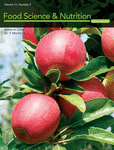
Review Article
Eating apples and apple products can enhance health by protecting the cardiovascular system, combating cancer and cognitive impairment, and improving hair growth, among other beneficial effects.
Zhang Y, Zeng M, Zhang X, Yu Q, Zeng W, Yu B, Gan J, Zhang S, Jiang X

Randomised Controlled Trial
Consumption of blueberry powder daily improves vascular function, cognitive abilities, and reduces blood pressure in healthy older individuals.
Wood E, Hein S, Mesnage R, Fernandes F, Abhayaratne N, Xu Y, Zhang Z, Bell L, Williams C, Rodriguez-Mateos A

Review Article
Sardines, being an affordable source of Omega-3 and other cardioprotective nutrients, can potentially reduce the need for Omega-3 supplementation and manage cardiometabolic diseases.
Santos HO, May TL, Bueno AA
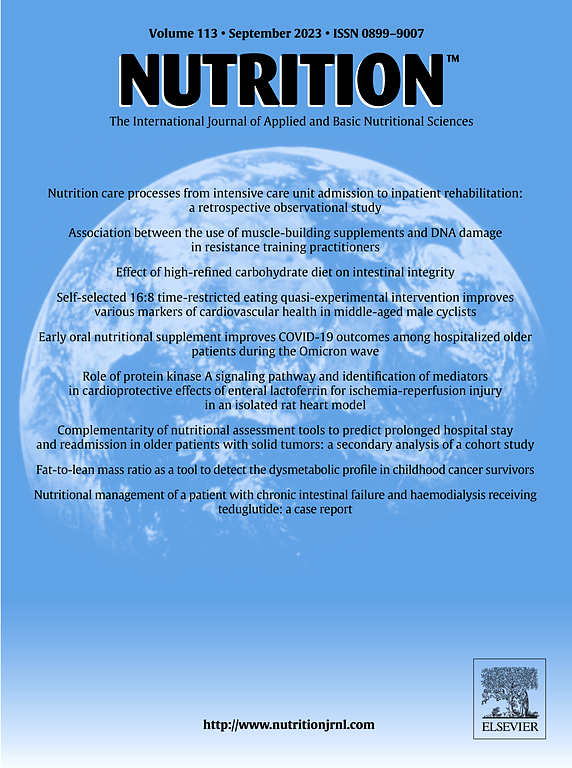
Systematic Review
Our dose-response analysis indicated that moderate green tea consumption (500–1000 mL/d) was associated with a 21% to 24% lower risk of stroke.
Wang ZM, Chen B, Zhou B, Zhao D, Wang LS

Cohort Study
Heavy coffee consumption increases the risk of cardiovascular disease mortality in individuals with severe hypertension, while green tea consumption does not.
Teramoto M, Yamagishi K, Muraki I, Tamakoshi A, Iso H
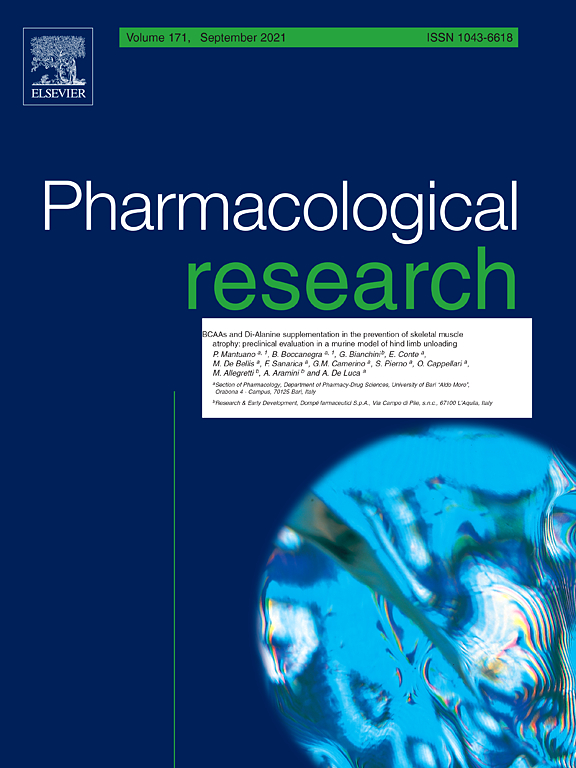
Review Article
Consumption of tea and coffee may possibly provide anti-inflammatory effects, contributing to reduced cardiovascular risk and mortality.
Surma S, Sahebkar A, Banach M
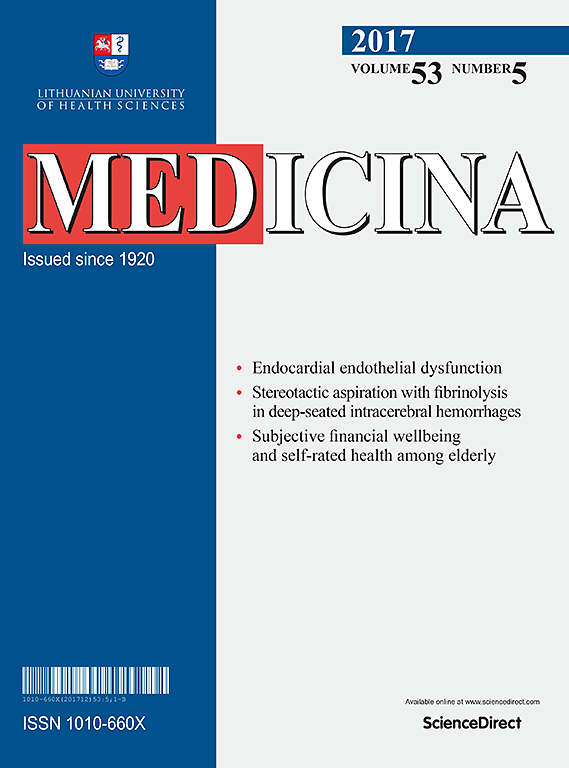
Review Article
Chaihu Shugan powder, a traditional Chinese medicine, presents potential advantages in treating post-stroke depression, showing potential as an alternative to conventional antidepressants.
Gao Z, Wang Y, Yu H
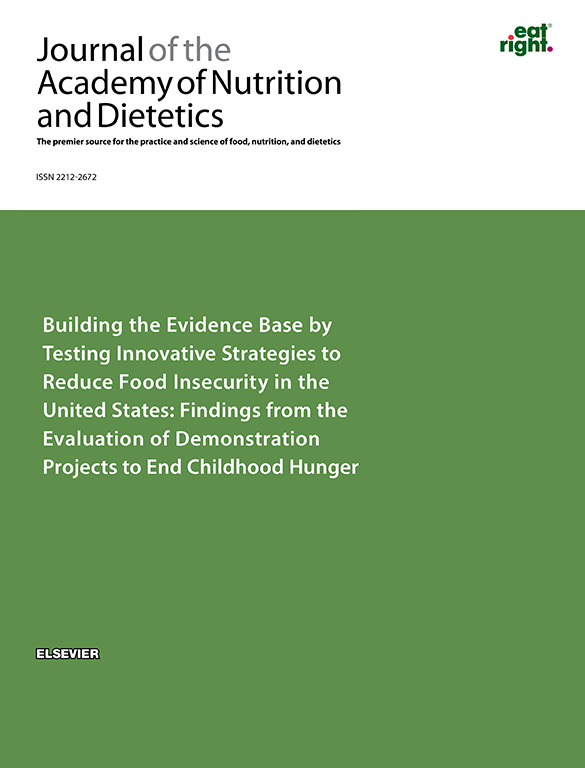
Systematic Review
Avocado consumption may lead to a reduction in total cholesterol and low-density lipoprotein cholesterol levels in people with high cholesterol without impacting body weight.
James-Martin G, Brooker PG, Hendrie GA, Stonehouse W

Systematic Review
Tart cherry juice shows promise in aiding blood sugar control and supporting heart health, highlighting its potential as a natural dietary addition.
Moosavian SP, Maharat M, Chambari M, Moradi F, Rahimlou M

Randomised Controlled Trial
Pomegranate extract consumption improves antioxidant levels, reduces oxidative stress and cardiovascular risk factors including blood pressure and body fat, and increases lean body mass.
Al-Dujaili EAS, Casey C, Stockton A
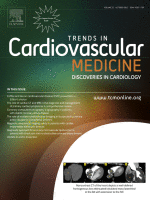
Review Article
Consuming 2-3 cups of coffee daily can help prevent cardiovascular disease and drinking at least 3 cups of green tea has similar benefits.
Chieng D, Kistler PM

Review Article
Pumpkin seed oil, with its phytochemical content, shows beneficial properties against cardiovascular problems in menopausal women and hormone imbalances.
Šamec D, Loizzo MR, Gortzi O, Çankaya T, Tundis R, Suntar , Shirooie S, Zengin G, Devkota HP, Reboredo‐Rodríguez P, Hassan STS, Manayi A, Kashani HRK, Nabavi SM

Review Article
The underutilized pomegranate peel, full of abundant bioactive substances, could be repurposed for its potential health benefits like anti-inflammatory, anti-cancer, cardiovascular protection, and antibacterial activities.
Mo Y, Ma J, Gao W, Zhang L, Li J, Li J, Zang J

Randomised Controlled Trial
Cocoa extract supplementation in older adults reduced cardiovascular disease related death rates, but did not significantly lessen total cardiovascular events.
Sesso HD, Manson JAE, Aragaki AK, Rist PM, Johnson LG, Friedenberg G, Copeland T, Clar A, Mora S, Moorthy MV, Sarkissian A, Carrick WR, Anderson GL

Systematic Review
Higher daily tea consumption, especially green tea, is linked to a lower risk of cerebral hemorrhage in adults.
Cheng P, Zhang J, Liu W, Sun Q, Fu Z, Lin H, Bi S, Zhu J

Systematic Review
Chinese herbal medicine shows evident efficacy in treating coronary heart disease patients with anxiety or depression, notably improving symptoms of angina pectoris.
Wang B, Teng Y, Li Y, Lai S, Wu Y, Chen S, Li T, Han X, Zhou H, Wang Y, Lu Z, Li H, Ding Y, Ma L, Zhao M, Wang X

Cohort Study
Eating more avocados, specifically two servings a week, is associated with a significantly lesser risk of cardiovascular disease and coronary heart disease.
Pacheco LS, Li Y, Rimm EB, Manson JAE, Sun Q, Rexrode K, Hu FB, Guasch‐Ferré M

Review Article
Extra virgin olive oil (EVOO) has beneficial health properties and can promote cardiovascular health, lipoprotein metabolism, and diabetes management in clinical nutrition.
Jiménez-Sánchez A, Martínez-Ortega AJ, Remón-Ruiz PJ, Piñar-Gutiérrez A, Pereira-Cunill JL, García-Luna PP

Review Article
Purple carrot roots, rich in bioactive compounds like anthocyanin, may be effective in preventing metabolic syndrome and cancer by reducing inflammation and metabolic changes.
Rasheed H, Shehzad M, Rabail R, Kowalczewski P, Kidoń M, Jeżowski P, Ranjha MMAN, Rakha A, Din A, Aadil RM
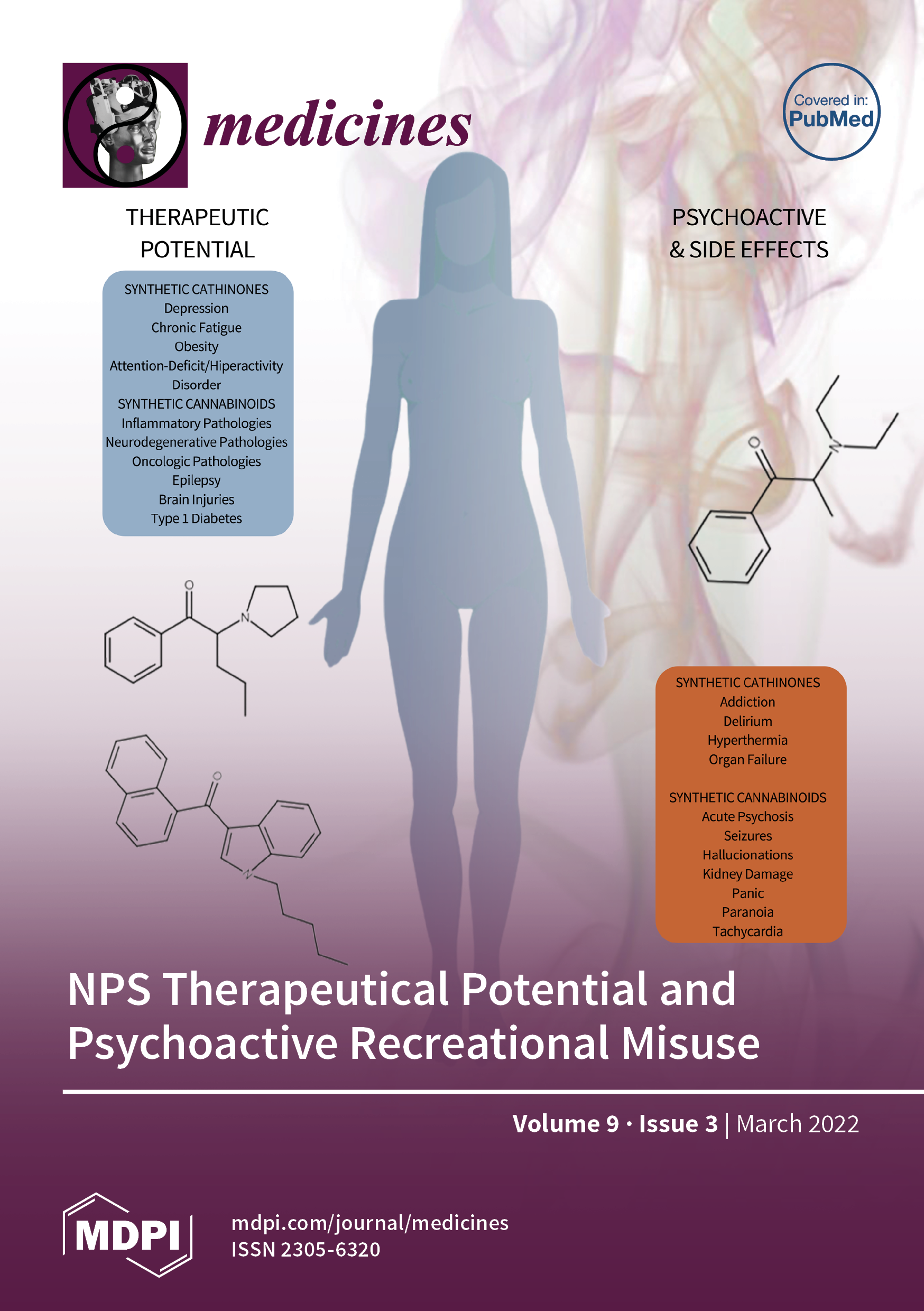
Systematic Review
Wen Dan Tang potentially treats neurological, psychiatric disorders, cardiovascular diseases, and digestive disorders, and might improve life quality in headache patients.
Pradhan SK, Li Y, Gantenbein AR, Angst F, Lehmann S, Shaban H

Review Article
Apple juice consumed in moderation has been found to positively impact markers of cardiovascular health, potentially influencing risk of cancer and neurodegenerative diseases.
Vallée Marcotte B, Verheyde M, Pomerleau S, Doyen A, Couillard C
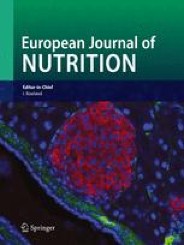
Meta-Analysis
Oat supplementation interventions can improve cardiovascular health markers among adults, regardless of their diet or metabolic conditions.
Llanaj E, Dejanovic GM, Valido E, Bano A, Gamba M, Kastrati L, Minder B, Stojic S, Voortman T, Marques-Vidal P, Stoyanov J, Metzger B, Glisic M, Kern H, Muka T

Review Article
Coconut water possesses unique compound profiles that imbue it with a broad spectrum of medical properties, incorporating aspects of nutrition, pharmacology, and disease prevention.
Rethinam P, Krishnakumar V

Review Article
The ketogenic diet, by reducing carbohydrate intake, shows potential in weight loss, insulin requirement reduction, and mitigation of inflammatory symptoms in patients with inflammatory arthritis.
Ciaffi J, Mitselman D, Mancarella L, Brusi V, Lisi L, Ruscitti P, Cipriani P, Meliconi R, Giacomelli R, Borghi C, Ursini F

Review Article
Fresh Hass avocados have been found to reduce cardiovascular disease risk, assist weight loss, improve cognitive function, and promote colonic microbiota health.
Dreher ML, Cheng FW, Ford NA
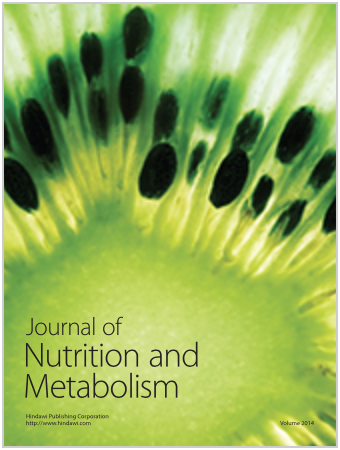
Review Article
The pomegranate plant has a rich inventory of phytochemical constituents showing pharmacological efficiency in treating cardiovascular and endocrine diseases.
Eghbali S, Askari SF, Avan R, Sahebkar A
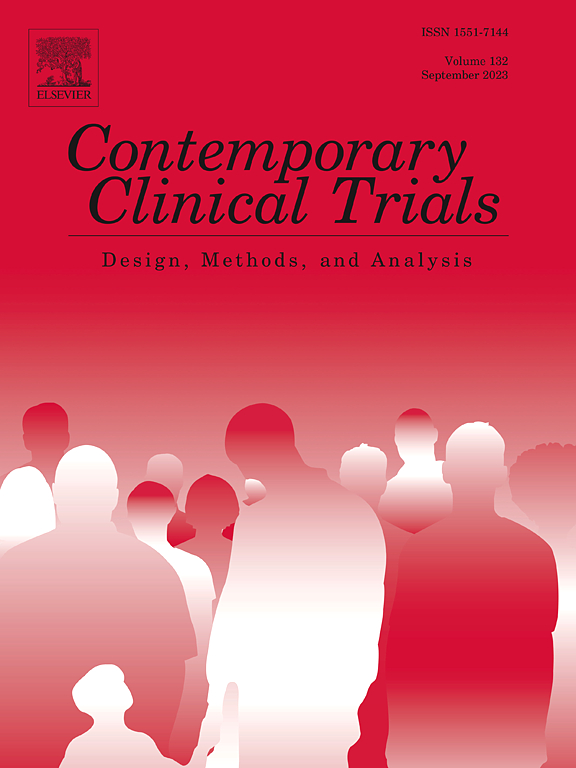
Randomised Controlled Trial
Consumption of one avocado per day can potentially reduce visceral adiposity and subsequently decrease the risk of diabetes and cardiovascular disease.
Reboussin DM, Kris-Etherton PM, Lichtenstein AH, Li Z, Sabate J, Matthan NR, Petersen K, Rajaram S, Vitolins M, Ford N
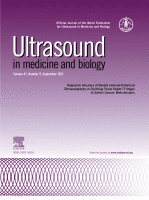
Randomised Controlled Trial
A new method for assessing the effects of therapies on atherosclerosis shows that pomegranate juice/extract has a significant influence on carotid vessel-wall-plus-plaque thickness.
Zhao Y, Spence JD, Chiu B
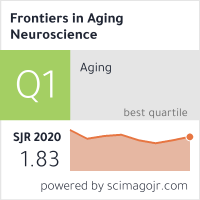
Cohort Study
Stroke patients who received acupuncture had a lesser risk of insomnia across various demographic and medical variables.
Qiu X, Han NS, Yao JX, Yu FR, Lin YY, Zhuang X
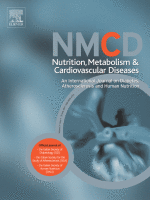
Systematic Review
Drinking coffee may be linked to lower mortality risk in type 2 diabetes patients.
Shahinfar H, Jayedi A, Khan TA, Shab-Bidar S

Cohort Study
Regular consumption of chocolate relates to lowered risk of death from all causes, cardiovascular disease, and Alzheimer’s disease, particularly in non-smokers.
Zhong GC, Hu TY, Yang PF, Peng Y, Wu JJ, Sun WP, Cheng L, Wang CR
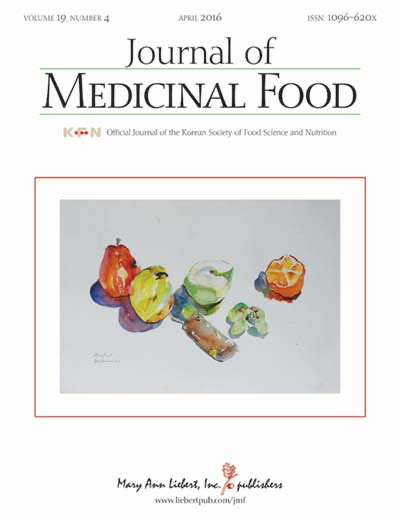
Animal Study
Omega-3 fatty acids found in selected fish oils, particularly smoked eel, effectively managed dyslipidemia and reduced cardiovascular disease risk factors.
Kontostathi M, Isou S, Mostratos D, Vasdekis V, Demertzis N, Kourounakis A, Vitsos A, Kyriazi M, Melissos D, Tsitouris C, Karalis E, Klamarias L, Dania F, Papaioannou GT, Roussis V, Polychronopoulos E, Anastassopoulou J, Theophanides T, Rallis MC, Black H

Randomised Controlled Trial
Moderate daily consumption of beer, both with and without alcohol, can significantly alleviate menopause-related symptoms and improve cardiovascular health in postmenopausal women.
Trius-Soler M, Marhuenda-Muñoz M, Laveriano-Santos EP, Martínez-Huélamo M, Sasot G, Storniolo CE, Estruch R, Lamuela-Raventós RM, Tresserra-Rimbau A
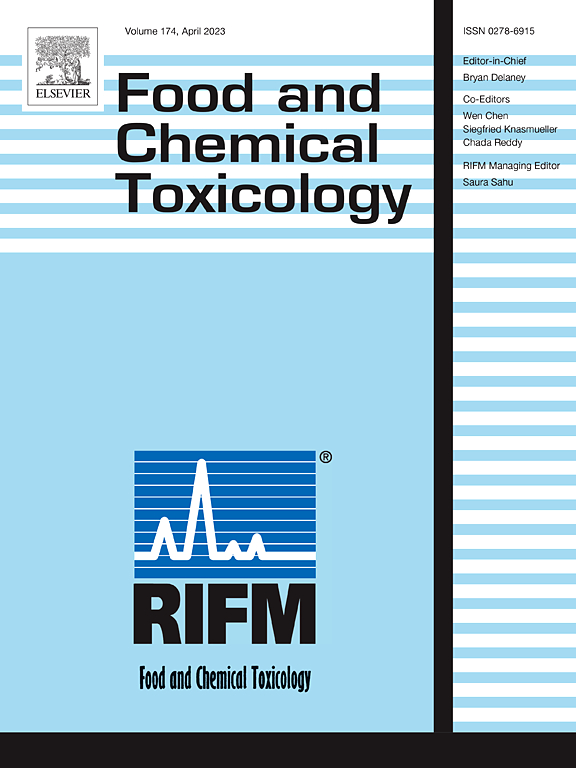
Systematic Review
Cocoa flavanols exhibit health and aging benefits and may act as powerful agents in preventing chronic diseases such as cardiovascular and metabolic disorders, and cancer.
Martin M, Ramos S
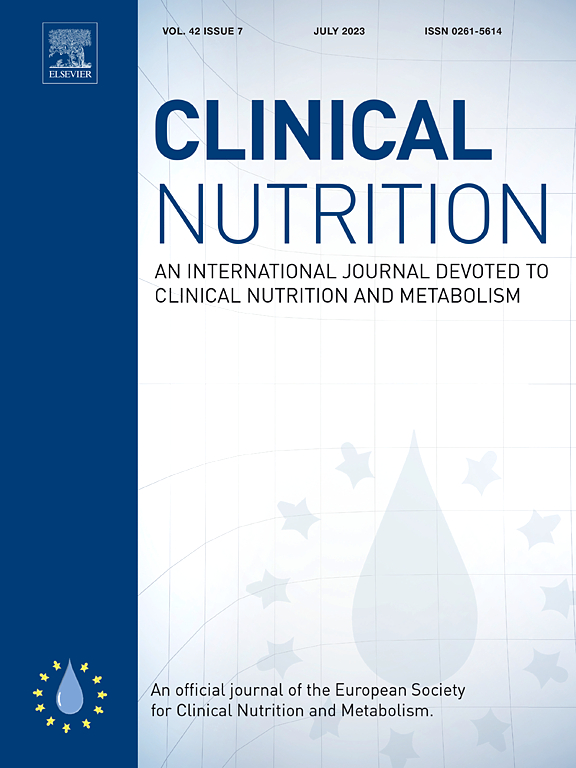
Randomised Controlled Trial
Eating sardines twice a week for a year significantly reduces the risk of developing type 2 diabetes in prediabetic individuals aged 65 and above.
Díaz-Rizzolo DA, Serra A, Colungo C, Sala-Vila A, Sisó-Almirall A, Gomis R

Randomised Controlled Trial
A one-year, sardine-enriched diet in an elderly population with pre-diabetes exerts a greater protective effect against developing type 2 diabetes and cardiovascular events.
Díaz-Rizzolo DA, Serra A, Colungo C, Sala-Vila A, Sisó-Almirall A, Gomis R
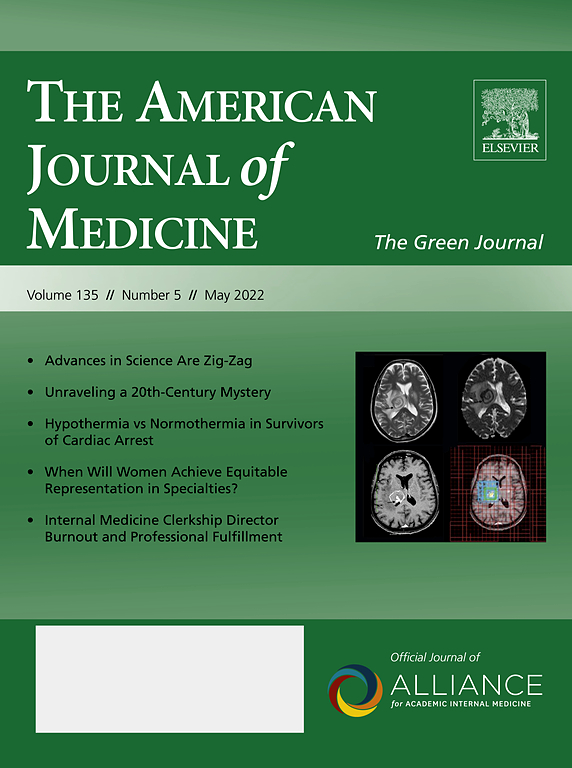
Systematic Review
Coffee consumption, particularly boiled coffee, may increase levels of certain cardiovascular risk markers, but no strong link was found to anti-inflammatory effects.
Daneschvar HL, Smetana GW, Brindamour L, Bain PA, Mukamal KJ

Systematic Review
Epidemiological studies suggest that the consumption of spicy chilli food is associated with reduced risk of all-cause as well as heart disease–related mortality.
Ofori-Asenso R, Mohsenpour MA, Nouri M, Faghih S, Liew D, Mazidi M.
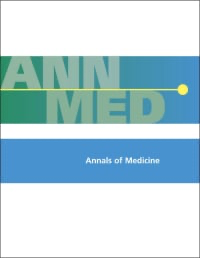
Systematic Review
The existing evidence, although with low level of confidence, suggests that walnut intake may have a beneficial effect on cognition-related outcomes, including cognitive function, mood, and stroke.
Cahoon, D., Shertukde, S. P., Avendano, E. E., Tanprasertsuk, J., Scott, T. M., Johnson, E. J., Chung, M., & Nirmala, N.
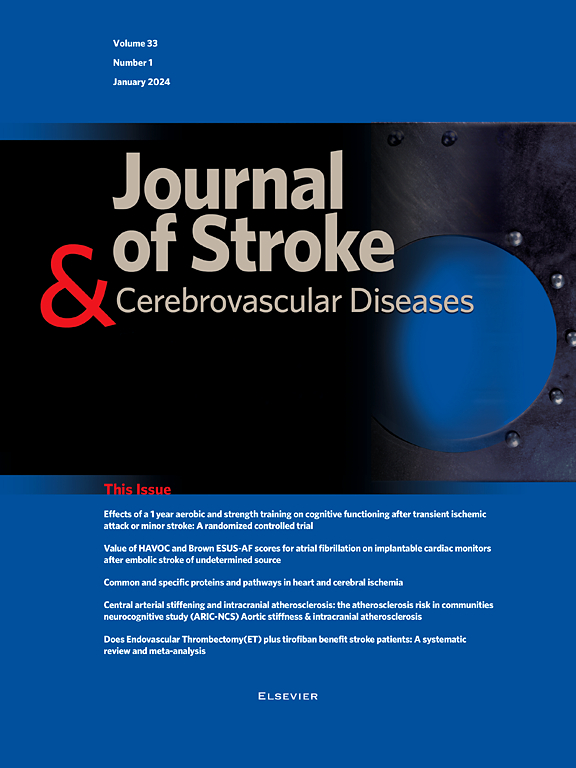
Systematic Review
Higher coffee consumption, specifically 3-4 cups daily, is associated with a 21% lower risk of stroke, with no further reductions with increased intake.
Shao C, Tang H, Wang X, He J

Review Article
Tian Ma, a traditional Chinese medicine, shows promise as a complementary therapy for aging-related diseases, including Alzheimer's and cerebrocardiovascular diseases.
Heese K
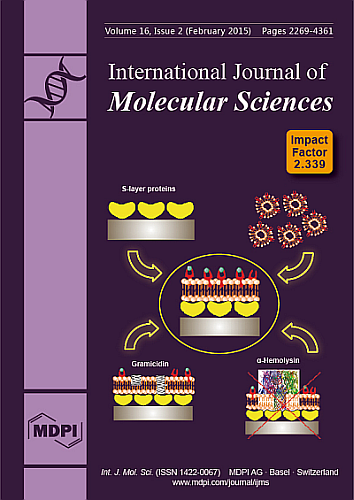
Review Article
Regular coffee consumption, due to its bioactive compounds, may have protective effects against chronic disorders and certain neurodegenerative conditions.
Socała K, Szopa A, Serefko A, Poleszak E, Wlaź P

Randomised Controlled Trial
Daily consumption of tart cherry juice may reduce processes involved in accelerated atherogenesis, potentially decreasing the risk of cardiovascular diseases.
Johnson SA, Navaei N, Pourafshar S, Jaime SJ, Akhavan NS, Alvarez-Alvarado S, Proaño GV, Litwin NS, Clark EA, Foley EM, George KS, Elam ML, Payton ME, Arjmandi BH, Figueroa A

Review Article
Jujube fruits contain a high amount of various bioactive compounds exerting antioxidant, anti-inflammatory, antiobesity, anti-cardiovascular disease, hepatoprotective, antidiabetic, anti-microbial, anticancer, and gastrointestinal-protective effects.
Rashwan, A. K, Karim, N., Shishir, M. Rezaul Islam, Bao, T., Lu, Y., & Chen, W.
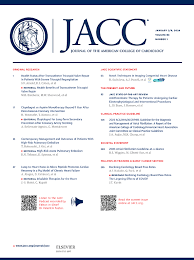
Randomised Controlled Trial
Incorporating daily doses of walnuts into the diet of elderly individuals significantly reduces the concentrations of several inflammatory biomarkers.
Cofán M, Rajaram S, Sala-Vila A, Valls-Pedret C, Serra-Mir M, Roth I, Freitas-Simoes TM, Bitok E, Sabaté J, Ros E

Review Article
Juhua, the flower head of Chrysanthemum morifolium Ramat, possesses multiple medicinal properties and has a significant role in dietary herbal medicine in China.
Yuan H, Jiang S, Liu Y, Daniyal M, Jian Y, Peng C, Shen J, Liu S, Wang W

Meta-Analysis
Supplementation with blueberry shows a potential for beneficial impact on reducing body weight, which might indirectly influence cardiovascular disease risk factors.
Miraghajani M, Momenyan S, Arab A, Hasanpour Dehkordi A, Symonds ME
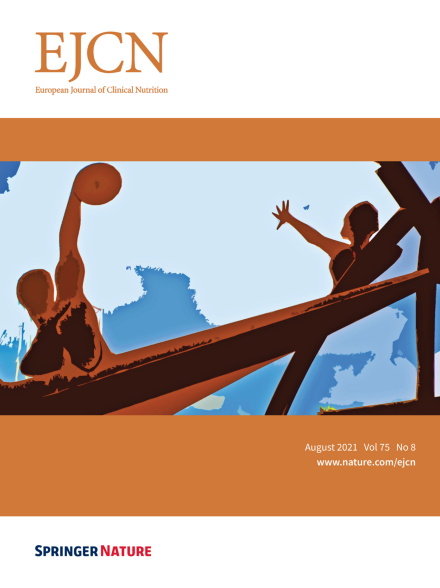
Systematic Review
The literature overall supports an inverse association between green tea and cardiovascular disease-related health outcomes, while the included meta-analyses generally suggested an inverse association between green tea and BMI-related and blood pressure outcomes.
Abe SK, Inoue M

Randomised Controlled Trial
Concentrated pomegranate juice consumption can potentially lower cardiovascular disease risk factors in women with polycystic ovary syndrome.
Abedini M, Ghasemi‐Tehrani H, Tarrahi MJ, Amani R

Meta-Analysis
Chronic consumption of cranberry or cherry juice might considerably improve blood pressure levels.
Wang Y, Gallegos JL, Haskell-Ramsay C, Lodge JK

Cohort Study
Adding Chinese herbal medicines to conventional therapy could decrease subsequent stroke risk for atrial fibrillation patients.
Zheng LC, Livneh H, Chen WJ, Lin MC, Lu MC, Yeh CC, Tsai TY

Daily consumption of coffee and green tea is linked with decreased body mass index, body fat percentage, and cardiovascular risks in middle-aged Japanese women.
Yonekura Y, Terauchi M, Hirose A, Odai T, Kato K, Miyasaka N
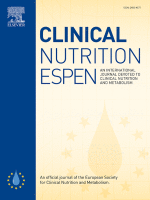
Systematic Review
Our findings showing that chocolate and flavonoid intake significantly improves the flow-mediated dilatation, provide mechanistic evidence to support a causal link between chocolate and flavonoid intake and lowered CVD risk.
Ebaditabar M, Djafarian K, Saeidifard N, Shab-Bidar S

Meta-Analysis
Pomegranate juice supplementation notably diminishes inflammation and vascular dysfunction markers in adults, offering potential cardiovascular health benefits.
Wang P, Zhang Q, Hou H, Liu Z, Wang L, Rasekhmagham R, Kord-Varkaneh H, Santos HO, Yao G
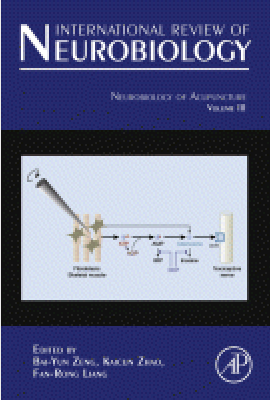
Review Article
The date fruit contains compounds such as flavonoids that can protect tissues from harm and reduce risks of illnesses like cardiovascular disease and cancer.
Bentrad N, Hamida-Ferhat A

Randomised Controlled Trial
Consuming walnuts daily can reduce cardiovascular risk factors in chronic kidney disease patients without altering significant physiological levels.
Sanchis P, Molina M, Berga F, Muñoz E, Fortuny R, Costa-Bauzá A, Grases F, Buades JM

Theoretical Article
Consumption of oat β-glucan may lower cholesterol and risk of cardiovascular disease by altering gut bacteria and their effects on bile acid and cholesterol metabolism.
Joyce SA, Kamil A, Fleige L, Gahan CGM

Randomised Controlled Trial
Synbiotic pomegranate juice daily consumption for 8 weeks enhances metabolic, oxidative, inflammatory, and blood pressure outcomes in females with Polycystic Ovarian Syndrome.
Esmaeilinezhad Z, Barati-Boldaji R, Brett NR, de Zepetnek JOT, Bellissimo N, Babajafari S, Sohrabi Z
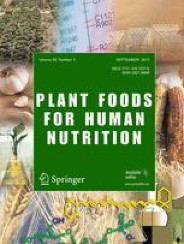
Results demonstrate that 100% watermelon juice is a palatable, effective means of increasing serum lycopene in older adult women, a group at risk for low carotenoid intake.
Ellis, A.C., Dudenbostel, T. & Crowe-White, K
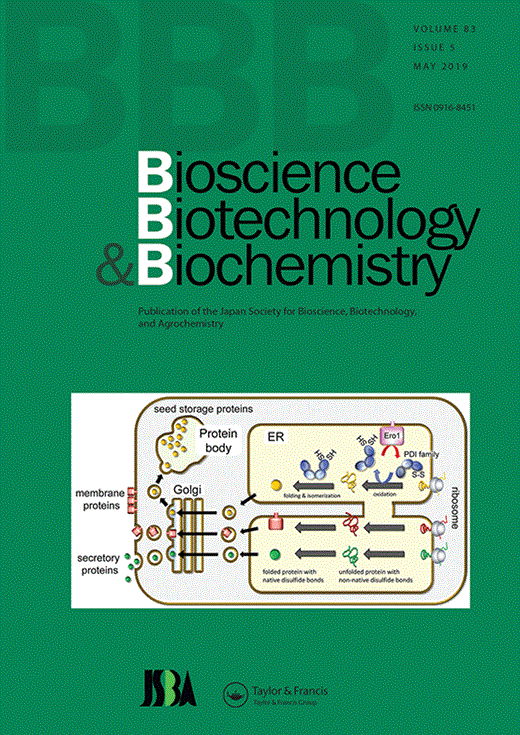
Randomised Controlled Trial
Adzuki bean extract administered once a day can result in increased HDL-C concentration.
Kitano-Okada T, Nagata R, Han KH, Mikami N, Satoh K, Nishihira J, Sasaki K, Ohba K, Fukusima M

Theoretical Article
Chrysanthemum, a plant primarily grown in China and Japan, offers significant health benefits including stress reduction, cardiovascular improvement, and lowering osteoporosis risk.
SHAHRAJABIAN MH
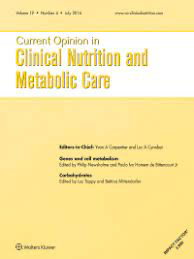
Systematic Review
Most bioactive walnut micronutrients synergize to affect multiple metabolic pathways leading to protection from chronic noncommunicable diseases.
Ros, Emilioa,b; Izquierdo-Pulido, Maríab,c; Sala-Vila, Aleix

Systematic Review
Incorporating walnuts into the diet improved blood lipid profile without adversely affecting body weight or blood pressure.
Marta Guasch-Ferré, Jun Li, Frank B Hu, Jordi Salas-Salvadó, Deirdre K Tobias
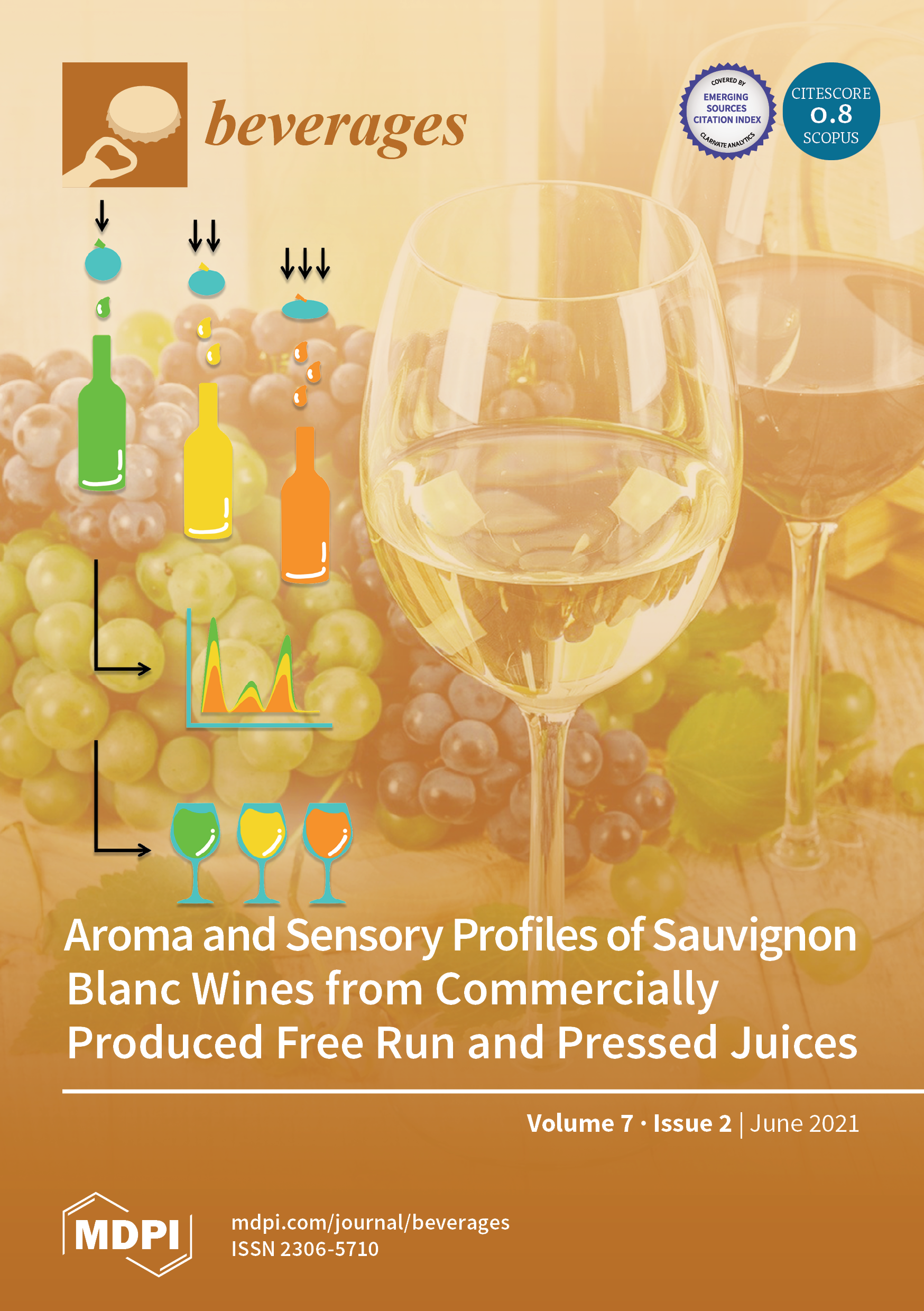
Systematic Review
Among the health benefits of green tea are: anticarcinogenic, anti-inflammatory, antimicrobial, and antioxidant properties, and benefits in cardiovascular disease and oral health.
Wanda C. Reygaert

Systematic Review
Cocoa consumption has strong beneficial impacts on cardiovascular health, reducing blood pressure, improving vascular function, and modulating lipid and glucose metabolism.
Ludovici V, Barthelmes J, Nägele MP, Enseleit F, Ferri C, Flammer AJ, Ruschitzka F, Sudano I

Systematic Review
Moderate chocolate consumption (up to 6 servings per week) is linked to a decreased risk of coronary heart disease, stroke, and diabetes, according to a meta-analysis of prospective studies.
Yuan S, Li X, Jin Y, Lu J

Systematic Review
Avocado, with its lipid-lowering, antihypertensive, antidiabetic, anti-obesity, and cardioprotective effects, can potentially manage metabolic syndrome more efficaciously than synthetic treatment options.
Tabeshpour J, Razavi BM, Hosseinzadeh H

Review Article
Previous records suggest pleiotropic pharmacological activities of capsaicin such as an analgesic, anti-obesity, anti-pruritic, anti-inflammatory, anti-apoptotic, anti-cancer, anti-oxidant, and neuro-protective functions. Emerging data indicate its clinical significance in treating vascular-related diseases, metabolic syndrome, and gastro-protective effects.
Basith S, Cui M, Hong S, Choi S
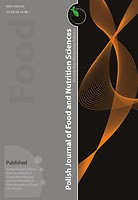
Review Article
Goji berries, classified as superfruits, possess potential beneficial implications in the dietary prevention of diseases like diabetes, cardiovascular diseases, and cancer.
Kulczyński B, Gramza-Michałowska A

Randomised Controlled Trial
Montmorency tart cherry juice intake can significantly lower systolic blood pressure in men with early hypertension, with improvements linked to phenolic acids.
Keane KM, George TW, Constantinou CL, Brown MA, Clifford T, Howatson G
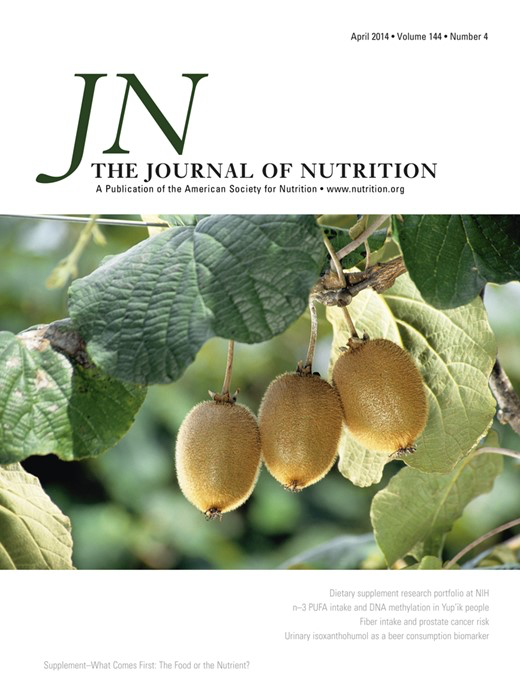
Randomised Controlled Trial
Dietary omega-3 intake shows promise in lowering systolic blood pressure.
Minihane AM, Armah CK, Miles EA, Madden JM, Clark AB, Caslake MJ, Packard CJ, Kofler BM, Lietz G, Curtis PJ, Mathers JC, Williams CM, Calder PC

Meta-Analysis
Current evidence provisionally demonstrates that acupuncture treatment is superior to either non-acupuncture or conventional therapy for cerebral infarction.
Li Li, Hong Zhang , Shu-qing Meng, Hai-zhou Qian
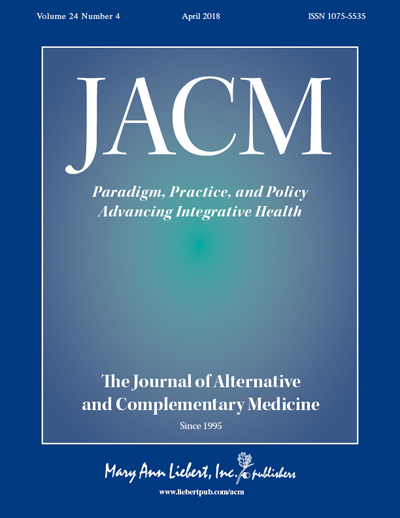
Systematic Review
This meta-analysis suggests that acupuncture had positive effects on cognitive function after stroke.
Fang Liu, Zhuang-Miao Li, Yi-Jing Jiang, and Li-Dian Chen.
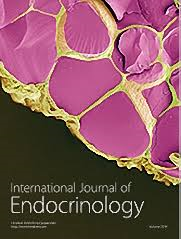
Animal Study
Regular intake of mineral-rich water, high in sodium bicarbonate, potassium, calcium, and magnesium, potentially reduces risk of Metabolic Syndrome and atherosclerotic cardiovascular disease.
Pereira CD, Severo M, Araújo JR, Guimarães JT, Pestana D, Santos A, Ferreira R, Ascensão A, Magalhães J, Azevedo I, Monteiro R, Martins MJ

Systematic Review
Regular chocolate or cocoa consumption, rich in flavan-3-ols, has been associated with improved insulin resistance and blood vessel function, suggesting potential cardiovascular benefits.
Hooper L, Kay C, Abdelhamid A, Kroon PA, Cohn JS, Rimm EB, Cassidy A

Experimental Study
Pomegranate polyphenols have notable antioxidant and antiatherogenic effects that lessen cholesterol, oxidized lipids accumulation, and atherosclerosis development in arterial macrophages.
Aviram M, Rosenblat M

Meta-Analysis
Consumption of dark chocolate and cocoa products has been shown to significantly reduce serum levels of low-density lipoprotein (LDL) and total cholesterol (TC), indicating potential cardiovascular benefits.
Tokede OA, Gaziano JM, Djoussé L
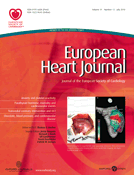
Cohort Study
Chocolate consumption appears to lower cardiovascular disease risk, in part through reducing blood pressure.
Buijsse B, Weikert C, Drogan D, Bergmann M, Boeing H
Executive Summary
Write an executive summary in the form of a blog article on the topic of "Research into Chinese medicine treatment for Cardiovascular Disease" summarising the research below and using language that can be easily understood by patients and avoiding medical jargon using a professional and caring tone of voice.
Write an executive summary in the form of a blog article on the topic of "Researched Chinese medicine treatments for Cardiovascular Disease" summarising the research below in an objective and easy to understand way, and using language that can be easily understood by patients. Group the article into Chinese medicine treatments first, followed by nutrition and other treatments. Avoid using medical jargon and use a professional and caring tone of voice.
Write me a concise but easy to understand executive summary on the topic of "Chinese medicine treatments for Cardiovascular Disease" based on the following research that I will give you. Your summary should be 2 paragraphs long in Australian English spelling and include references to the studies.
A Review Article published in 2024 in the journal The Natural Products Journal found that Pumpkin seeds are recognised for their medicinal, nutritional, and cosmetic benefits, including anti-diabetic, heart disease prevention, anti-cancer, and antioxidant qualities. The review article undertakes a comprehensive exploration of the nutraceutical importance of pumpkin seeds. The methodology includes an examination of the various known substances in the seeds, such as phytoestrogens, unsaturated fatty acids, and vitamin E. The study then delves into the different benefits and therapeutic uses of these components stretching from medicinal to nutritional to cosmetic applications. The results of this research are diverse and impressive, with implications for several major health sectors. Their potential anti-diabetic and hypoglycemic properties could suggest a significant role in the management and prevention of diabetes. Meanwhile, the seeds' potential in cardiovascular disease prevention could help to address one of the most pressing global health issues. Moreover, potential anti-cancer properties imply that these seeds could even have a part to play in cancer prevention. The review also described potential additional qualities, such as antidepressant, anti-helminthic (parasite-removing), and antioxidant effects.
A Review Article published in 2024 in the journal Foods found that Jujube, a Chinese native plant with numerous active components, exhibits calming effects, nourishes blood, and strengthens the spleen and stomach, alongside promising neuroprotective and cardiovascular benefits. This study statistically evaluated and tracked the research status of Jujube over the past two decades. The research observed, among other things, the plant's traditional use in calming nerves, nourishing blood, and strengthening the spleen and stomach in traditional Chinese medicine. The study found that the Jujube has numerous effective components, including polysaccharides, phenols, and triterpene acids. The study delved into understanding how these components can provide a variety of pharmacological activities. Such activities include neuroprotection, as well as the prevention and treatment of cardiovascular diseases. The study also expounded comprehensively the molecular mechanisms and efficacies of Jujube. The research, therefore, provides an exhaustive appraisal of the pharmacological potentials of the Jujube plant and its prospective industrial relevance in food and pharmaceutical industries.
A Review Article published in 2023 in the journal Nutrire found that Almond consumption has beneficial impacts on cardiovascular diseases, diabetes, obesity, and it can improve cognitive performance and protect against skin aging. The methodology employed in this study included analyzing a range of clinical studies centered on the health benefits linked to the consumption of sweet almond nuts. Various health outcomes correlated with almond consumption were investigated such as body weight, food intake, blood pressure, blood lipid composition, glucose and insulin levels, oxidative status, liver enzymes, and some inflammation biomarkers. The discussion of the results reveals that almond consumption has been found to create favorable alteration in aspects like body weight, food intake, blood pressure, blood lipid composition, glucose, and insulin levels, as well as oxidative status, liver enzymes, and inflammation biomarkers. These findings highlight the beneficial impact of almonds on multiple health issues including cardiovascular diseases, diabetes, and obesity. Additionally, the consumption of almonds has been associated with improved cognitive performance and protection against skin photodamage and aging.
A Review Article published in 2023 in the journal International Journal of Food Properties found that Plums, which are rich in bioactive compounds, antioxidants, and vitamins, can help maintain blood glucose level, bone health, heart health and even treat certain cancers. The research explored the health benefits and medicinal effects of plums, a common fruit belonging to the Prunus genus. The study focused not only on their consumption as a food source but also their uses in beverages. Special attention was given to the polyphenolic compounds, bioactive compounds, and antioxidants inherent in plums, such as phenolic acids, anthocyanins, carotenoids, and various organic acids, alongside an array of necessary minerals and vitamins. Apart from detailing traditional nutritional components, the study analyzed the unique constituents of plums like caffeic acid, chlorogenic acid and other phenolic compounds which contribute to its antioxidant property. The broader health benefits provided by these compounds spanning bone health, cardiovascular health, blood glucose stabilization, and potential impacts on gastrointestinal diseases were studied, with a particular emphasis on their possible role in the prevention and treatment of heart disease and specific kinds of cancer: lung and oral. The role of plums' low fat and high dietary fibre content in heart disease prevention was of special focus.
A Systematic Review published in 2023 in the journal Nutrients found that Natural calcium-rich mineral waters offer a bioavailable calcium source, beneficial for bone health, cardiovascular function, weight management, and overall well-being. This systematic review analyzed peer-reviewed articles, clinical trials, and experimental studies from the past decade. It focused on the health benefits of calcium-rich mineral waters, especially for individuals with lactose intolerance or on plant-based diets. The review process assessed the contribution of these waters to daily calcium intake and their bioavailability compared to other calcium sources. The review found that natural mineral waters high in calcium can significantly enhance calcium intake, with improved absorption rates. These waters show promise in promoting bone health and cardiovascular function, including potential reductions in blood pressure and cardiovascular disease risk. Some evidence suggests benefits in weight management. However, the review highlighted the need for further research on interactions with other dietary components, effects on specific health conditions, and long-term consumption impacts. Despite these gaps, calcium-rich mineral waters are recognized as a valuable dietary calcium source for a diverse population.
A Review Article published in 2023 in the journal Nutrients found that Honey intake has observed beneficial effects on various health aspects like cardiovascular, metabolic risk factors, and wound healing, primarily replacing other sweeteners. In this comprehensive review study, the researchers went beyond just looking at one or two aspects of health; instead, they embarked on an ambitious task of reviewing forty-eight clinical trials that were published between 1985 and 2022, involving a total of 3655 subjects. The researchers aimed to critically analyze the effect of honey on multiple health indices, including, but not limited to, cardiovascular and metabolic risk factors, glucose tolerance, mucositis inflicted by chemo-radiotherapy, cough in children, and wound healing. The evaluation and analysis of the data involved a thorough examination of the results of each of the clinical trials, consideration of several potential variables, and detailed cross-study comparisons. This broad and deep investigation allowed the researchers to draw correlations and pinpoint the beneficial influences of honey, considered a nutritious and natural food. The results from these clinical trials saw more beneficial effects on health from honey intake when compared to neutral or negative outcomes. It was most notably effective, particularly when used as a substitute for other sweeteners. The review also pointed out the potential use of honey as a safe adjuvant to be used in combination with drugs for specific illnesses. Confidently stating that honey has clear benefits in the clinical trials analyzed, the researchers fostered a promising narrative for the further exploration and acceptance of honey as a health booster.
A Review Article published in 2023 in the journal Antioxidants found that Pomegranate and its components could offer considerable potential as dietary supplements or supports in treatment for cardiovascular and non-cardiovascular diseases. The review examines a myriad of recent preclinical and clinical studies focusing on pomegranate. To harness the health benefits of pomegranate, different components were extracted and studied. These include juice from the fruit's edible arils, oil from the seeds, and bioactive products from the typically discarded peel. The research also considers advances in encapsulation and green extraction techniques to optimize the use of waste pomegranate products. The studies suggest promising beneficial effects of pomegranate in diverse areas. Though challenges remain, such as limited oral bioavailability and uncertainty concerning the role of active metabolites, the collective findings offer crucial insight into the significant potential of pomegranate as a dietary supplement or co-therapy for a range of diseases, especially cardiovascular and non-cardiovascular ones.
A Review Article published in 2023 in the journal Food Science & Nutrition found that Eating apples and apple products can enhance health by protecting the cardiovascular system, combating cancer and cognitive impairment, and improving hair growth, among other beneficial effects. The study took a comprehensive approach to evaluate the health benefits of apples and apple products by conducting a literature review of relevant clinical, epidemiological, in vitro, and in vivo studies. It involved an exhaustive search of the PubMed database for a ten-year period, sourcing studies that reported on the effects of different apple products: juices, purees, pomaces, dried apples, and extracts rich in apple bioactives. The findings indicate that the consumption of apples and their derivations contributes to multiple aspects of human health. These products exhibited a range of protective effects against diseases such as cardiovascular conditions and cancer. Moreover, they were associated with enhanced cognitive function, facilitated hair growth, the healing of burn wounds, and improved oral health. The use of apples and apple-based products also helped to reduce UV-induced skin pigmentation, alleviated the symptoms of atopic dermatitis and cedar hay fever, and even prevented skin flushing caused by niacin. The beneficial impacts of apple consumption can be attributed to a variety of mechanisms including, but not limited to, vascular endothelial protection, blood lipid regulation, anti-inflammatory and antioxidant effects, as well as anti-invasion and antimetastatic tendencies. These results provide a significant reference point for various fields, including medicine and nutrition, contributing to their development and application.
A Randomised Controlled Trial published in 2023 in the journal The American Journal of Clinical Nutrition found that Consumption of blueberry powder daily improves vascular function, cognitive abilities, and reduces blood pressure in healthy older individuals. This double-blind, parallel randomized controlled trial engaged 61 healthy older individuals aged between 65 to 80 years old. Participants were given either 26g of freeze-dried wild blueberry (WBB) powder, comprising 302 mg anthocyanins, or a similar placebo with zero mg anthocyanins. Measurements were made for endothelial function, cognitive function, arterial stiffness, blood pressure, cerebral blood flow, gut microbiome, and blood parameters, both at the start of the trial and again following 12 weeks of daily consumption. In addition, plasma and urinary polyphenol metabolites were analyzed through the use of microelution solid-phase extraction combined with liquid chromatography-mass spectrometry. In the WBB group, there was a notable increase in endothelial function and a decrease in 24-hour ambulatory systolic blood pressure, when compared to the placebo group. Enhanced immediate recall on the auditory verbal learning task was also observed, along with better accuracy on a task-switch task following administering of WBB. Notably, the total 24-hour urinary excretion of polyphenols also significantly increased in the WBB group comparative to the control group. In contrast, there were no discernible changes in cerebral blood flow or gut microbiota composition. These findings imply that WBB polyphenols could contribute to reducing future cardiovascular disease risk in older populations, and might enhance memory processes and executive functioning in older adults at risk of cognitive decline.
A Review Article published in 2023 in the journal Frontiers in Nutrition found that Sardines, being an affordable source of Omega-3 and other cardioprotective nutrients, can potentially reduce the need for Omega-3 supplementation and manage cardiometabolic diseases. The abstract primarily acknowledges the importance of Omega-3 polyunsaturated fatty acids with respect to managing diseases related to heart health and metabolism, for instance, type 2 diabetes, hypertension, hypertriglyceridaemia, and fatty liver disease. However, these fatty acids are not the sole beneficial component of sardines. Minerals including but not limited to calcium, potassium, and magnesium as well as substances like taurine and arginine found in sardines have a significant role in controlling mild inflammation and oxidative stress which are usually present in cardiovascular diseases and hemodynamic dysfunction. The results discussed in the abstract suggest a positive correlation between consumption of sardines and potential cardiometabolic benefits. By considering the dose-response relationship effects, a pragmatic approach towards consumption of nutrients was suggested. The intake of sardines was seen not only as a means of Omega-3 supplementation but also as a comprehensive approach to enhancing cardiovascular health. The abstract concludes with an emphasis on the many beneficial nutrients found in sardines besides Omega-3, underlining the need to shift the focus from synthetic supplementation to natural dietary improvement.
A Systematic Review published in 2023 in the journal Nutrition found that Our dose-response analysis indicated that moderate green tea consumption (500–1000 mL/d) was associated with a 21% to 24% lower risk of stroke. The meta-analysis aimed to clarify the inconsistent findings in epidemiologic studies regarding the link between green tea consumption and stroke risk. Five prospective cohort studies, involving 645,393 participants and 11,421 stroke cases, were analyzed. The summary relative risk (RR) revealed a substantial association, indicating a 26% reduction in stroke risk with the highest green tea consumption. The dose-response analysis indicated a nonlinear relationship, and compared with non-consumers, various levels of green tea intake showed progressively reduced RRs for stroke, emphasizing a potential protective effect. The findings from the meta-analysis strongly suggest an inverse association between green tea consumption and stroke risk. Notably, the highest green tea consumption demonstrated a significant 26% risk reduction. The dose-response analysis further highlighted a nonlinear relationship, with moderate consumption levels (500–1000 mL/d) showing the most substantial risk reduction. These results provide support for recommending green tea consumption as a measure for the primary prevention of stroke.
A Cohort Study published in 2023 in the journal Journal of the American Heart Association found that Heavy coffee consumption increases the risk of cardiovascular disease mortality in individuals with severe hypertension, while green tea consumption does not. With the use of the Japan Collaborative Cohort Study, researchers assessed 18,609 participants, both male and female, aged between 40 to 79 years. These participants had varying blood pressure levels, categorized into optimal and normal BP, high-normal BP, and two stages of hypertension. They completed a questionnaire about their lifestyle, diet, and medical history, and underwent health examinations, which were followed up until 2009. The association of coffee and green tea consumption on cardiovascular disease mortality was then calculated using a Cox proportional hazard model. It was found over an 18.9 year follow-up period that heavy coffee consumption was linked to increased risk of cardiovascular disease mortality among those suffering from the second to third grade of hypertension. In stark contrast, people with optimal and normal, high-normal blood pressure and first grade hypertension did not show such associations between coffee consumption and cardiovascular disease mortality. Interestingly, the risk of cardiovascular disease mortality was not found to be increased across any blood pressure categories in relation to green tea consumption.
A Review Article published in 2023 in the journal Pharmacological Research found that Consumption of tea and coffee may possibly provide anti-inflammatory effects, contributing to reduced cardiovascular risk and mortality. The methodology of this narrative review examined the potential anti-inflammatory properties of consuming tea and coffee as a factor in reducing the risk of cardiovascular disease. This was done by analyzing a plethora of studies and meta-analyses that explored the impact of diet on inflammation, with a keen focus on the consumption of these beverages. The studies looked at a variety of risk factors for atherosclerotic cardiovascular disease, including inflammation biomarkers such as C-reactive protein, along with the impact of modern lipid-lowering treatments. In discussing the results, it was noticed that inconsistent findings were produced from the analysed studies which made a conclusive determination challenging. However, a trend was observed where drinking tea and coffee seemed to raise adiponectin levels, reduce reactive oxygen species and lower low-density lipoprotein cholesterol levels. Despite these potential anti-inflammatory properties of tea and coffee being somewhat uncertain due to various confounding factors, their consumption is still recommended as part of a healthy diet.
A Review Article published in 2022 in the journal Medicina found that Chaihu Shugan powder, a traditional Chinese medicine, presents potential advantages in treating post-stroke depression, showing potential as an alternative to conventional antidepressants. The research approach merges both clinical and experimental studies in exploring the effectiveness of Chaihu Shugan powder, a classic traditional Chinese medicine formula, in treating post-stroke depression. Starting from current clinical cases, the study thoroughly investigates the mechanisms of action and drug and chemical effects of this treatment. The attention is given to the performance of Chaihu Shuan powder in counteracting post-stroke depression, focusing on patients who have not shown an adequate response or experienced adverse reactions to commonly used antidepressants like selective serotonin reuptake inhibitors and serotonin-norepinephrine reuptake inhibitors. The results indicate outstanding benefits of the Chinese herbal treatment for post-stroke depression. It shows that Chaihu Shugan powder could potentially offer a significant contribution to incapacity and recovery of cognitive dysfunction and motor function after a stroke. It also helps to prominently lessen the probability of neurovascular events coming back. This highlights the values of Chaihu Shugan powder that serves as an effective and promising alternative to the standard drug treatments for post-stroke depression.
A Systematic Review published in 2022 in the journal Journal of the Academy of Nutrition and Dietetics found that Avocado consumption may lead to a reduction in total cholesterol and low-density lipoprotein cholesterol levels in people with high cholesterol without impacting body weight. The study reviewed the impact of diets containing avocado on cardiometabolic risk factors compared with diets containing no or low amounts of avocado. Five electronic databases were searched aiming to identify studies published between 1990 and 2021. The selected studies included randomized controlled trials of three weeks or more and prospective cohort studies. In total, ten studies, nine controlled trials, and one observational study, met the inclusion criteria. Risk of bias was evaluated, and overall quality of the evidence was inspected. Meta-analyses were performed when there were three or more studies of the same design reporting the same outcome. Upon reviewing the results, the study found a minor, noteworthy reduction in total cholesterol levels in the avocado group as opposed to the control groups. There was no significant difference found in low-density lipoprotein cholesterol, high-density lipoprotein cholesterol, or triglycerides. However, in populations with hypercholesterolemia, avocado consumption demonstrated significant reductions in both total cholesterol and low-density lipoprotein cholesterol levels. It is also worth noting that consumption of avocados did not negatively affect body weight or composition.
A Systematic Review published in 2022 in the journal Complementary Therapies in Medicine found that Tart cherry juice shows promise in aiding blood sugar control and supporting heart health, highlighting its potential as a natural dietary addition. Tart cherry juice was found to lower fasting blood sugar but didn't have a significant impact on blood pressure, insulin, cholesterol, body fat, or weight. It is rich in antioxidants, which may be why it's beneficial for the heart. Changes in gut bacteria might also play a role. More research with larger and varied groups of people is needed to confirm these findings and understand them better. In the meantime, healthcare professionals may consider suggesting tart cherry juice for heart health.
A Randomised Controlled Trial published in 2022 in the journal Antioxidants found that Pomegranate extract consumption improves antioxidant levels, reduces oxidative stress and cardiovascular risk factors including blood pressure and body fat, and increases lean body mass. In the study, 24 healthy participants were divided into two groups: one consumed a natural standardized pomegranate extract, while the other, a placebo, in a randomized, single-blind placebo-controlled trial. Evaluations were conducted at baseline and post 14 and 28 days of the experiment, with variables including anthropometric measurements, blood pressure, pulse wave speed, body composition, as well as the levels of salivary and urinary cortisol, cortisone, total phenolics, antioxidant capacity, and lipid peroxidation. The results indicated significant increases in urinary total phenolics excretion and antioxidant capacity after 14 and 28 days of pomegranate extract intake. By day 28, notable decreases were noted in systolic and diastolic blood pressure, pulse wave velocity, body fat and fat mass, and an increase in lean body mass. In terms of glucocorticoid levels, there was a marked decrease in saliva cortisol at day 28 in the morning for the pomegranate extract group, along with a decrease in the cortisol/cortisone ratio following 28 days of pomegranate extract intake at morning, noon, and evening. Reductions were also seen in urine free cortisol levels by day 14. These observations were unique to the pomegranate extract group, with no significant changes noted in the placebo group.
A Review Article published in 2022 in the journal Trends in Cardiovascular Medicine found that Consuming 2-3 cups of coffee daily can help prevent cardiovascular disease and drinking at least 3 cups of green tea has similar benefits. In this review, researchers examined the effects of habitual coffee and tea consumption on cardiovascular disease (CVD) prevention. Specifically, they studied the association between 2-3 cups of coffee or tea consumed daily and their beneficial effects on metabolic syndrome, including hypertension and diabetes mellitus, focusing on how these popularly consumed beverages might affect lipid levels. The analysis of findings drew a correlation between moderate coffee intake and a reduced risk of several cardiovascular conditions, such as coronary heart disease, heart failure, arrhythmia, stroke, and CVD, in addition to lowering mortality from all causes. It was also noted that the benefits extended to higher tea consumption as well, particularly in the case of green tea, where it led to improved survival rates in population-based studies.
A Review Article published in 2022 in the journal Comprehensive Reviews in Food Science and Food Safety found that Pumpkin seed oil, with its phytochemical content, shows beneficial properties against cardiovascular problems in menopausal women and hormone imbalances. The study focused on gathering scientific information that highlights the potential of pumpkin seed oil as a health-benefiting food ingredient. Its focus is on the oil’s chemical composition, phytochemical content, biological activity, safety measures alongside the various production processes. The researchers examined major phytochemicals found in the oil, including polyphenols, phytoestrogens, and fatty acids, while also noting the potential health benefits of carotenoids, squalene, tocopherols, and minerals present in it. In terms of methodology, most studies within this review were conducted in vitro to validate the oil's antioxidant and antimicrobial activities. Furthermore, there were clinical studies undertaken specifically to observe the effect of the oil in addressing cardiovascular challenges in menopausal women and conditions related to sex hormone imbalances. The comprehensive overview covers a wide array of data on the composition and potential uses of pumpkin seed oil.
A Review Article published in 2022 in the journal Frontiers in Nutrition found that The underutilized pomegranate peel, full of abundant bioactive substances, could be repurposed for its potential health benefits like anti-inflammatory, anti-cancer, cardiovascular protection, and antibacterial activities. This paper conducts a miniature review of the characterization and physiological functions of the key bioactive compounds present in pomegranate peel. The exploration underscores the main phenolic compounds in the peel, illustrating substances such as tannins, flavonoids, phenolic acids, dietary fibers, alkaloids, minerals, and vitamins. A deep understanding of these components and their potential benefits is vital to the study and future applications. The research finds that these core components essentially function as antioxidants, either enhancing oxidative biomarkers or proactively neutralizing reactive oxygen species. By establishing these key functions, it essentially links these activities to a broader context of benefits, including but not limited to anti-inflammatory, anti-cancer, cardiovascular protection, and antibacterial attributes, thereby indicating a potential for substantial health benefits. With comprehensive understanding and appropriate application of these substances, the pomegranate peels, often classified as waste, could find a new life as robust health-enhancing elements.
A Randomised Controlled Trial published in 2022 in the journal The American Journal of Clinical Nutrition found that Cocoa extract supplementation in older adults reduced cardiovascular disease related death rates, but did not significantly lessen total cardiovascular events. A randomized, double-blind, placebo-controlled trial was conducted on 21,442 US adults aged 60 or over, all of who were free of major cardiovascular disease and recently diagnosed cancer. The participants were assigned to either a cocoa extract supplement, which included 500 mg flavanols per day, or a placebo. The intervention phase ran from June 2015 to December 2020. The primary outcome was focused on the number of total cardiovascular events, including myocardial infarction, stroke, and cardiovascular death among others. The results showed that during a median follow-up of 3.6 years, there were 410 participants taking cocoa extract and 456 under placebo who had confirmed total cardiovascular events. Secondary endpoints showed reduced death due to cardiovascular disease for the cocoa extract supplement users. However, there was no significant impact on the incidence of total cardiovascular events. Conversely, a lower risk of total cardiovascular events was supported when analyses were censored at nonadherence. Overall, no safety concerns were raised during the trial.
A Systematic Review published in 2022 in the journal Acta Neurologica Belgica found that Higher daily tea consumption, especially green tea, is linked to a lower risk of cerebral hemorrhage in adults. This meta-analysis uncovered evidence of a connection between tea consumption and cerebral hemorrhage risk, exploring databases including Web of Science, PubMed, Embase, and Scopus until December 2021. The synthesis utilized relative risks or odds ratios from observational studies. The pool of data included ten studies involving over 721,827 participants. The evaluation revealed that a higher rate of tea consumption, and more specifically green tea, was significantly related to a lower risk of cerebral hemorrhage. Interestingly, this connection could be observed even when adjusted for key lifestyle factors such as alcohol consumption, fruit and vegetable intake, and physical activity. It is worth noting that the intake of tea on a daily basis demonstrated a protective effect against the risk of cerebral hemorrhage.
A Systematic Review published in 2022 in the journal Frontiers in Pharmacology found that Chinese herbal medicine shows evident efficacy in treating coronary heart disease patients with anxiety or depression, notably improving symptoms of angina pectoris. Method: The study was conducted through a systematic approach, wherein literature search was performed based on certain screening studies. Information was extracted by two researchers who independently assessed the quality of the articles. These articles covered numerous studies concerning the active ingredients of Chinese herbal medicine utilized for treating coronary heart disease accompanied by anxiety or depression. The analysis of this data was performed through network pharmacology. Results: According to 32 chosen studies, Chinese herbal medicine was found to be markedly beneficial in treating anxiety or depression in patients who also had coronary heart disease. This was true in comparison to blank control groups, and the efficacy of Chinese herbal medicine appeared not to be inferior to that of Western medicine. Chinese herbal medicine also significantly enhanced angina stability. Observations after usage of Chinese herbal medicine demonstrated similar trends in terms of angina frequency and electrocardiogram analysis. From the network pharmacology viewpoint, a set of certain compounds were found to possess the greatest correlation to the pathological targets of coronary heart disease, anxiety, and depression. Anti-damage or apoptosis, anti-inflammation, oxidative stress reduction, and maintaining neurotransmitter homeostasis were believed to be the principal functional mechanisms.
A Cohort Study published in 2022 in the journal Journal of the American Heart Association found that Eating more avocados, specifically two servings a week, is associated with a significantly lesser risk of cardiovascular disease and coronary heart disease. The research analysis included 68,786 women from the Nurses' Health Study and 41,701 men from the Health Professionals Follow-up Study, who were free of cancer, coronary heart disease, and stroke at the start. Their diet was assessed using validated food frequency questionnaires at the start and then every four years. The researchers used Cox proportional hazards regressions to estimate hazard ratios. Over three decades of follow-up, 14,274 new cases of cardiovascular disease were documented, including 9,185 coronary heart disease events and 5,290 strokes. After adjusting for lifestyle and other dietary factors, it was found that compared to non-consumers, those who had higher avocado intake exhibited a lower risk of cardiovascular disease and coronary heart disease. No significant associations for stroke were detected. Furthermore, it was noted that replacing half a serving per day of certain fatty foods with equivalent amounts of avocado was linked with lower risk of cardiovascular disease.
A Review Article published in 2022 in the journal Nutrients found that Extra virgin olive oil (EVOO) has beneficial health properties and can promote cardiovascular health, lipoprotein metabolism, and diabetes management in clinical nutrition. The methodology of this narrative review involved an extensive synthesis and illustration of the various characteristics and clinical applications of EVOO and its components such as oleic acid, hydroxytyrosol, and oleuropein. It looked at their significance in diet therapy, use in oleic acid-based enteral and parenteral nutrition formulations, and oral supplementation formulations. In their discussion of the results, the researchers found diverse health benefits associated with EVOO. Particularly, they highlighted the potential of whole EVOO in diet therapy and its minor components in supplementation to enhance cardiovascular health, control lipoprotein metabolism, and manage diabetes mellitus within a clinical nutrition framework. It was seen as a significant addition to nutritional and dietary strategies, with a potential for therapeutic application in several diseases and clinical demographics.
A Review Article published in 2022 in the journal Applied Sciences found that Purple carrot roots, rich in bioactive compounds like anthocyanin, may be effective in preventing metabolic syndrome and cancer by reducing inflammation and metabolic changes. The methodology employed in the research deeply studies the role of purple carrot’s main bioactive compounds against metabolic syndrome and cancer. The main focus lies on anthocyanin, a phenolic compound present in purple carrot roots. This natural food source was shifted towards as a healthier nutritional approach instead of dietary supplements. The research leans on the effectiveness of these compounds in evading or delaying the onset of cardiovascular diseases, obesity, diabetes, and cancer by inhibiting inflammatory effects. The discussion primarily surrounds the role of bioactive compounds found in purple carrots, specifically anthocyanin, in their potential prevention of metabolic syndrome and cancer. The study focused on how these components could disrupt the onset of cardiovascular disease, obesity, diabetes, and similar health issues. The results suggest that these compounds were successful in decreasing metabolic changes and inflammation. It has been suggested that purple carrots' inherent components might serve as a major tool in the prevention and treatment of metabolic syndrome and cancer.
A Systematic Review published in 2022 in the journal Medicines found that Wen Dan Tang potentially treats neurological, psychiatric disorders, cardiovascular diseases, and digestive disorders, and might improve life quality in headache patients. The methodology of the study included the utilization of various online databases like PubMed, Medline, Cochrane Library, AcuTrials, Embase, Semantic Scholar, Jstor, and internet research. The study also involved reviewing ancient and modern Chinese medical textbooks. The research noted that while there were no dedicated studies on Wen Dan Tang in the context of migraine and tension-type headaches, it gathered and examined data for each compound found in the formula. The discussion of the results revealed the therapeutic potential of the bioactive compounds present in Wen Dan Tang. This was especially in the case of patients with neurological and psychiatric disorders, cardiovascular diseases, metabolic syndrome, and digestive disorders. Additionally, the correlations between Wen Dan Tang and the reduction of headaches were explored. A potential improvement in the quality of life was highlighted, especially for patients suffering from migraines and tension-type headaches.
A Review Article published in 2022 in the journal Nutrients found that Apple juice consumed in moderation has been found to positively impact markers of cardiovascular health, potentially influencing risk of cancer and neurodegenerative diseases. The methodology of this review involved examining 67 studies focused on the health implications of apple juice consumption, with special attention given to 20 interventional studies conducted on humans. The bulk of the examined studies looked at potential effects relating to oxidative stress markers, with some also looking at effects on inflammatory markers, lipid profile, and diabetes markers. The analysis of the results highlighted a noticeable association between the consumption of cloudy apple juice and markers revealing good cardiovascular health. The positive effects were especially significant in relation to oxidative stress. In addition, apple juice also exhibited beneficial influence on other health indicators like inflammation, lipid profile, and diabetes.
A Meta-Analysis published in 2022 in the journal European Journal of Nutrition found that Oat supplementation interventions can improve cardiovascular health markers among adults, regardless of their diet or metabolic conditions. The methodology involved analyzing various randomized clinical trials that tested how oats, or extracts rich in oat beta-glucan and avenanthramides affected markers of cardiovascular disease risk. The sample population was predominantly subjects with high cholesterol, obesity, and mild metabolic disturbances. Interventions were compared to control arms without oats. In the discussion on results, it was found that subjects receiving the oat supplementation had improved health metrics such as total cholesterol, LDL cholesterol, glucose levels, body mass index, weight, and waist circumference. However, when the oat supplementation was compared to heterogeneous interventions, like wheat, eggs, rice, etc., reductions in the levels of glycated haemoglobin, diastolic blood pressure, HDL cholesterol, and apolipoprotein B were also seen. Despite these promising results, there were some concerns around the bias risk associated with the majority of included randomized clinical trials.
A Review Article published in 2022 in the journal Reference Series in Phytochemistry found that Coconut water possesses unique compound profiles that imbue it with a broad spectrum of medical properties, incorporating aspects of nutrition, pharmacology, and disease prevention. The study utilized comprehensive analysis to assess the chemical profile of coconut water, identifying a range of components including phytohormones, enzymes, antioxidant compounds, vitamins, minerals, and phenolic compounds. These components are known to contribute to the water's biological activity and pharmacological effects, thereby enabling a raft of medicinal properties inherent to coconut water. The water was found to feature anti-microbial, anti-bacterial, anti-inflammatory, anti-hypertensive, rejuvenating, hepatoprotective, hypolipidemic, and diuretic properties. An examination of the therapeutic effects of coconut water revealed a significant impact on gastric dysfunction, dysentery, and child malnutrition alongside notable capabilities to manage hypertension. The water was found to promote exercise performance, reduce swelling, dissolve kidney stones, improve kidney function, improve digestion, relieve constipation, reduce the risk of heart disease, lower high blood pressure, and improve cholesterol levels. Consumption of tender coconut water was specifically found to reduce the risk of heart disease, help prevent Alzheimer’s disease pathologies and prevent osteoporosis in experimental animals. The unique nutritional profile of coconut water was also found to provide it with the capacity to balance body chemistry and fight cancer.
A Review Article published in 2021 in the journal Frontiers in Medicine found that The ketogenic diet, by reducing carbohydrate intake, shows potential in weight loss, insulin requirement reduction, and mitigation of inflammatory symptoms in patients with inflammatory arthritis. The ketogenic diet operates on the principle of substantially limiting carbohydrate consumption with a daily calorie percentage between 5-10%, facilitating a metabolic switch towards the use of ketone bodies. Studies indicate promise in a variety of applications including weight loss, insulin requirement minimization in diabetes, cancer protocol supplementation, neurological treatment, and control optimization for metabolic and cardiovascular diseases. Although literature on the anti-inflammatory properties of the ketogenic diet on rheumatic diseases is somewhat limited, their beneficial effects on weight loss are evidenced by related biomechanical and biochemical factors. Obesity is recognized to stimulate macrophage activation and generate pro-inflammatory cytokines including TNF-α, IL-1b, and IL-6. Furthermore, scientists believe that the ketogenic diet’s primary clinical effect could be linked to the enhancement of insulin sensitivity. Insulin resistance demonstrates a correlation with increased TNF-α, IL-1α, IL-1β, IL-6, and leptin. Additionally, reduction in body adipose tissue and weight loss contribute to the anti-inflammatory effects and their impact on cardiovascular health. Within the context of rheumatoid arthritis, fasting has been shown to reduce disease symptoms, potentially through the production of a key ketone body, β-hydroxybutyrate, which may also stifle IL-17. This, combined with intermittent fasting, was shown to provide symptomatic improvements in psoriatic arthritis. However, the current literature does not allow for definitive conclusions regarding the effects of a ketogenic diet on ankylosing spondylitis.
A Review Article published in 2021 in the journal Nutrients found that Fresh Hass avocados have been found to reduce cardiovascular disease risk, assist weight loss, improve cognitive function, and promote colonic microbiota health. The methodology used in this comprehensive review entailed conducting 19 clinical trials, five observational studies, and examination of several biological mechanisms. These focused on understanding and identifying the primary health effects of Hass avocados in different population groups such as healthy overweight or obese adults, older normal-weight adults, and overweight or obese women. The effects were thoroughly measured in terms of cardiovascular health, body weight, cognitive function, and colonic microbiota health. The primary health effects of Hass avocados were then linked to its unique nutritional properties - the unsaturated to saturated fat ratio, the presence of multifunctional prebiotic and viscous fiber, its low energy density, and the increase in carotenoid absorption facilitated by its oleic acid and water emulsion, particularly when combined with low-fat fruits and vegetables. The results indicated significant positive effects from consuming Hass avocados, especially when incorporated into a healthy dietary plan like the Mediterranean diet. Consumption of avocados was found to lead to reduced cardiovascular disease risk in healthy overweight or obese adults, primarily by undesirable cholesterol profiles and promoting vascular health. For overweight or obese women, it helped in weight reduction and lessened visceral fat tissue. The consumption of avocados improved cognitive function in both older normal-weight adults and young to middle age overweight adults, particularly their executive function. It was also found to enhance colonic microbiota health in overweight or obese individuals by fostering healthier microflora and fecal metabolites.
A Review Article published in 2021 in the journal Journal of Nutrition and Metabolism found that The pomegranate plant has a rich inventory of phytochemical constituents showing pharmacological efficiency in treating cardiovascular and endocrine diseases. The researchers set out to review both traditional and scientific applications of P. granatum focusing on its phytochemical content and potential for aiding in drug development. They gathered relevant information through both classic herbal literature and electronic databases, which included renowned platforms such as PubMed, Scopus, and ScienceDirect. The culmination of traditional and contemporary research showed an array of phytochemical constituents in P. granatum, including polyphenolics, flavonoids, anthocyanosides, alkaloids, lignans, and triterpenes. Randomized controlled trials indicated these constituents demonstrate pharmacological activity, particularly against diseases like diabetes, cardiovascular disease, oral cavity disorders, endocrine disorders, and even cancer. The review, therefore, not only points to the traditional uses of P. granatum but underscores their validation through scientific support.
A Randomised Controlled Trial published in 2021 in the journal Contemporary Clinical Trials found that Consumption of one avocado per day can potentially reduce visceral adiposity and subsequently decrease the risk of diabetes and cardiovascular disease. The Habitual Diet and Avocado Trial was a multicenter, randomized, controlled study that evaluated the impact of daily avocado consumption over a period of six months. The experiment involved a large and diverse cohort. Participants were required to incorporate a daily avocado into their diet as a substitute for their regular dietary intake, notably those devoid of avocado consumption. Their progress was measured using magnetic resonance imaging (MRI) to ascertain the potential decrease in visceral adiposity, with individuals with increased waist circumference being the primary focus of the study. Additional measures such as hepatic lipid content, plasma lipid profiles, blood pressure and high sensitivity C-reactive protein were also part of the evaluation. The study showed promising results in terms of weight control and reduction of visceral adiposity among participants. Initial results suggest that the sense of satiety post avocado consumption may subsequently lead to an overall decrease in energy intake. Moreover, the daily consumption of avocados was observed to not only reduce visceral fat but also display potential benefits impacting cardiometabolic disease risk. The benefits of avocado consumption were notably apparent among a cohort with an increased waist circumference, thus confirming the potential health benefits of avocados in weight management and risk reduction of obesity-related diseases.
A Randomised Controlled Trial published in 2021 in the journal Ultrasound in Medicine & Biology found that A new method for assessing the effects of therapies on atherosclerosis shows that pomegranate juice/extract has a significant influence on carotid vessel-wall-plus-plaque thickness. The study utilized a tracked weighted average of carotid vessel-wall-plus-plaque thickness change in patients who've been randomly assigned to consume pomegranate juice/extract or placebo. Three-dimensional ultrasound images of patients' arteries were captured initially and a year later. These images were reassembled into three-dimensional maps and then projected onto a carotid template to create two-dimensional maps. A weight was calculated at every point on the two-dimensional map to spotlight the anatomic locations where plaque progression or regression was likely. The method used accounted for misalignment within a single subject and across various subjects to deliver a more precise assessment. The results showed a remarkable difference between patients who consumed pomegranate juice/extract and those who took placebo, based on the weighted average of vascular wall thickness change, observed from the two-dimensional maps with aligned correspondence. Thus, the study concluded that pomegranate juice/extract significantly impacts atherosclerosis, underscoring its value in the context of therapy. This methodical approach also significantly heightened the cost-effectiveness of preliminary trials for new atherosclerosis therapies.
A Cohort Study published in 2021 in the journal Frontiers in Aging Neuroscience found that Stroke patients who received acupuncture had a lesser risk of insomnia across various demographic and medical variables. The study data was derived from the case database of a Chinese hospital, featuring stroke patients diagnosed between 2010 and 2019. These patients were sorted into two groups: one which received acupuncture and one which did not. The sorting was performed using a propensity score matching technique. Comparisons were made between the two groups using the incidence of insomnia as the primary indicator, with Cox regression analysis and the Kaplan-Meier method serving as the main analytical tools. The results indicated that stroke patients who underwent acupuncture treatments were less susceptible to insomnia as compared to counterparts who didn't receive acupuncture treatment. This decrease in the incidence of insomnia was observed across various categories such as genders, age groups, stroke types and stroke locations, with the acupuncture group displaying a significantly lesser cumulative incidence of insomnia.
A Systematic Review published in 2021 in the journal Nutrition, Metabolism and Cardiovascular Diseases found that Drinking coffee may be linked to lower mortality risk in type 2 diabetes patients. In this study, the researchers conducted an exhaustive literature search through PubMed, Scopus, and Web of Sciences up to November 2020. They were looking for prospective cohort studies that evaluated the link between coffee consumption and the risk of cardiovascular disease and mortality in patients with type 2 diabetes. Two reviewers took on the work of extracting relevant data and assessing the certainty of evidence using the GRADE approach. A random-effects model was deployed to estimate hazard ratios. Dose-response connections were modeled using a one-stage mixed-effects meta-analysis. The researchers included ten prospective cohort studies that totalled 82,270 cases. The results showed an interesting trend: compared to those who did not consume coffee, the hazard ratios were consistently lower for mortality outcomes and cardiovascular disease, especially where the consumption rate was four cups per day. Importantly, no such association was found for either cancer mortality or stroke. The evidence suggested a potential inverse monotonic association between coffee drinking and mortality across all causes and cardiovascular disease, alongside a linear association for coronary heart disease and total cardiovascular events. The degree of certainty in these results was moderate for all-cause mortality, but was low or very low for all other reported outcomes.
A Cohort Study published in 2021 in the journal Aging found that Regular consumption of chocolate relates to lowered risk of death from all causes, cardiovascular disease, and Alzheimer’s disease, particularly in non-smokers. The study traps a population-based cohort of 91,891 participants aged between 55-74 years from across the United States. The consumption of chocolate by these participants is gauged through a food frequency questionnaire. The Cox regression model was utilized to generate risk estimates. In an average monitoring period of 13.5 years, 19,586 all-cause deaths were recorded. In the discussion of the outcomes, the study reveals an inverse correlation between regular chocolate intake and all-cause mortality. This advantage was more significant in those participants who never smoked compared to current or ex-smokers. A stronger inverse association was found for deaths from cardiovascular disease and Alzheimer's disease. A nonlinear dose-response pattern was discovered for all-cause and cardiovascular deaths, with the least risk seen at a chocolate intake of 0.7 and 0.6 servings per week, respectively.
A Animal Study published in 2021 in the journal Journal of Medicinal Food found that Omega-3 fatty acids found in selected fish oils, particularly smoked eel, effectively managed dyslipidemia and reduced cardiovascular disease risk factors. The study began by inducing dyslipidemia through a high fat diet in a mouse model. After 30 days of this diet, all animals displayed hyperlipidemia. Subsequently, the diet was switched to consist of 90% standard rodent chow and 10% oil derived from different fish varieties (eel, sardine, cod liver, trout). This diet was maintained for the next 60 days. Blood glucose, total blood cholesterol, triglycerides, and high-density lipoprotein were quantified at the end of the study period. Additionally, the fish oils' omega-3 and omega-6 fatty acid percentages and ratio were taken into account by using gas chromatography. The results showed that incorporating fish oils in the diet considerably improved the hyperlipidemic state triggered by the high-fat diet. Specifically, eel and cod liver oil diets led to significant decreases in triglycerides. Meanwhile, all diets, apart from the standard rodent chow and sardine, resulted in noticeable decreases in blood glucose. Interestingly, smoked eel stood out as the best source for omega-3 fatty acids due to its optimal balance of omega-6 fatty acids, excellently alleviating the mixed hyperlipidemia induced by the high-fat diet.
A Randomised Controlled Trial published in 2021 in the journal Nutrients found that Moderate daily consumption of beer, both with and without alcohol, can significantly alleviate menopause-related symptoms and improve cardiovascular health in postmenopausal women. In the research, 37 postmenopausal women were voluntarily put through a parallel controlled intervention trial, involving three study groups. The trial involved 16 women consuming beer with alcohol (330 mL/day), 7 women consuming non-alcoholic beer (660 mL/day), and 14 women as control. In assessing the results, it was found that both interventions, beer with and without alcohol, substantially reduced the severity of menopause-associated symptoms. Specifically, beer with alcohol positively contributed to reducing psychological discomforts linked to menopause when compared to the control group. It was additionally noted that these beneficial effects could be traced to the non-alcoholic section of the beer, as the sex hormone profile remained largely unchanged across the different study groups. In addition, the group that consumed non-alcoholic beer conveyed improvements in their lipid profiles and exhibited lower blood pressure levels, indicating better cardiovascular health.
A Systematic Review published in 2021 in the journal Food and Chemical Toxicology found that Cocoa flavanols exhibit health and aging benefits and may act as powerful agents in preventing chronic diseases such as cardiovascular and metabolic disorders, and cancer. This research primarily relies on a comprehensive review of numerous human studies conducted over the past two decades. These studies provided significant data related to the health effects of cocoa intake and its impact on various chronic diseases. The studies encompassed different demographics and health conditions. Though most studies indicate beneficial effects of cocoa on health and prevention of chronic diseases, the results exhibit some inconsistency. Different studies suggest various mechanisms of action for cocoa, but these potential pathways are still not completely understood. Also, crucial issues like recommending cocoa consumption to healthy subjects or patients, determining the appropriate dosage, or the period of intake remain unresolved. Despite these unclarities, the potential of cocoa use to decrease the risk for certain chronic diseases and improve general health and quality of life is emphasized.
A Randomised Controlled Trial published in 2021 in the journal Clinical Nutrition found that Eating sardines twice a week for a year significantly reduces the risk of developing type 2 diabetes in prediabetic individuals aged 65 and above. In this study, 152 individuals with prediabetes and age 65 or older were chosen from three primary care centers in Barcelona. These subjects had a fasting glucose of 100-124 mg/dL. They were divided into two intervention groups: a control group (CG) and a sardine group (SG). While both groups were given the same nutritional diet to prevent type 2 diabetes for a year, the sardine group was instructed to include 200 grams of sardines in their diet every week. Data including fasting glucose levels, type of diet followed, and other demographic variables were collected before starting and after ending the diet. After a year, the sardine group, when compared to the control group, showed significant reductions in the percentage of individuals classified as very high risk for developing type 2 diabetes. The sardine group also showed improved health parameters such as increased HDL-cholesterol and adiponectin levels, decreased triglyceride levels, and slightly reduced blood pressure. Additionally, the consumption of sardine nutrients - omega-3, EPA and DHA, vitamin D, fluorine, and taurine - was significantly higher in the sardine group. Further, changes in erythrocyte membrane fatty acids were detected only in the sardine group, which included a decrease in 5 omega-6 fatty acids and an increase in 3 omega-3 fatty acid types.
A Randomised Controlled Trial published in 2021 in the journal Clinical Nutrition found that A one-year, sardine-enriched diet in an elderly population with pre-diabetes exerts a greater protective effect against developing type 2 diabetes and cardiovascular events. Following the nutrition intervention, 29.6% of SG subjects had left the "very high" risk group (from 37.3% to 7.7%), while only 4.9% of CG subjects had managed to do so (from 27.3% to 22.4%), a finding which is significantly different.
A Systematic Review published in 2021 in the journal The American Journal of Medicine found that Coffee consumption, particularly boiled coffee, may increase levels of certain cardiovascular risk markers, but no strong link was found to anti-inflammatory effects. Methodically considering pre-selected databases such as PubMed, Embase, CINAHL and more, this study rigorously searched for randomized controlled trials to analyse the impacts of coffee consumption on inflammatory indicators of cardiovascular risk. Duplicate data and trials that did not meet the study's criteria were removed. The remaining 17 studies that passed scrutiny were included in the analysis, looking particularly at effects of coffee on cholesterol levels, apolipoprotein B levels and interleukin 6 levels. This comprehensive review resulted in interesting findings. Boiled coffee emerged as a potential culprit for increased levels of total and low-density lipoprotein cholesterol along with apolipoprotein B. Filtered coffee, on the other hand, did not show similar trends. In one trial, caffeinated coffee showed a noteworthy increase in blood interleukin 6 levels compared to participants who did not consume coffee. However, no robust anti-inflammatory effects connected to coffee consumption could be confidently ascertained to be a significant factor in reducing mortality rates related to cardiovascular disease.
A Systematic Review published in 2021 in the journal Angiology found that Epidemiological studies suggest that the consumption of spicy chilli food is associated with reduced risk of all-cause as well as heart disease–related mortality. This systematic review and meta-analysis examined the association between spicy food (chilli pepper, chilli sauce, or chilli oil) consumption with cardiovascular and all-cause mortality. Medline and EMBASE were searched from their inception until February 2020 to identify relevant prospective cohort studies. Hazard ratios (HRs)/relative risk (RRs) were pooled via random-effect meta-analysis. Of the 4387 citations identified, 4 studies (from the United States, China, Italy, and Iran) were included in the meta-analysis. The included studies involved a total of 564 748 adults (aged ≥18 years; 51.2% female) followed over a median duration of 9.7 years. The pooled data suggested that compared with people who did not regularly consume spicy food (none/<1 d/wk), regular consumers of spicy food experienced a 12% (HR/RRpooled 0.88, 95% CI, 0.86-0.90; I 2 = 0%) lower risk of all-cause mortality. Moreover, spicy food consumption was associated with significant reduction in the risk of death from cardiac diseases (HR/RRpooled 0.82, 0.73-0.91; I 2 = 0%), but not from cerebrovascular disorders (HR/RRpooled 0.79, 0.53-1.17; I 2 = 72.2%). In conclusion, available epidemiological studies suggest that the consumption of spicy chilli food is associated with reduced risk of all-cause as well as heart disease–related mortality. Further studies in different populations are needed to confirm this association.
A Systematic Review published in 2021 in the journal Annals of Medicine found that The existing evidence, although with low level of confidence, suggests that walnut intake may have a beneficial effect on cognition-related outcomes, including cognitive function, mood, and stroke. The existing evidence, although with low level of confidence, suggests that walnut intake may have a beneficial effect on cognition-related outcomes, including cognitive function, mood, and stroke. Limitations in study design and comparability render the available evidence insufficient to draw a firm conclusion regarding the effects of walnut on cognition in adults. High quality studies and standardized interventions and measurement tools are necessary to determine the role of walnut intake in cognitive health.
A Systematic Review published in 2021 in the journal Journal of Stroke and Cerebrovascular Diseases found that Higher coffee consumption, specifically 3-4 cups daily, is associated with a 21% lower risk of stroke, with no further reductions with increased intake. The research utilized a systematic review and meta-analysis approach to investigate the link between coffee consumption and stroke risk. Random-effects models were employed to compile relative risk estimates. The assessment was structured to compare the highest and lowest categories of coffee consumption and utilized a one-stage robust error meta-regression model for stroke risk assessment. The study incorporated 21 separate studies which in total included over 2.4 million participants. The findings suggest a significant inverse connection between coffee consumption and the risk of stroke. According to the pooled relative risk analysis, the highest versus the lowest categories of coffee consumption showed a decrease in stroke risk. There seems to be a nonlinear (U-shaped) relationship between stroke risk and coffee consumption, with the lowest risk (21% lower) associated with consuming 3-4 cups of coffee per day. Sensitivity analysis suggested the influence of each individual data set on the overall result wasn't significant, and while some evidence of publication bias was witnessed, additional analysis established that potential bias didn't impact the findings noticeably.
A Review Article published in 2020 in the journal Evidence-Based Complementary and Alternative Medicine found that Tian Ma, a traditional Chinese medicine, shows promise as a complementary therapy for aging-related diseases, including Alzheimer's and cerebrocardiovascular diseases. This study utilized previous research to methodically analyze the efficacy and safety of Tian Ma in treating aging-related diseases. Investigations spanned across various well-structured disease models, with particularly close attention paid to Alzheimer's Disease. The study trialed not just on its raw form, but also explored how it performs within different herbal preparations and as pure natural extracts. The study's findings indicate that Tian Ma might present a viable alternative treatment for aging-related cerebrocardiovascular diseases and dementia. Specifically, its promising attributes were most noticeable in the context of complementary therapy for Alzheimer's Disease. The potential effectiveness of Tian Ma seems to be maintained across the various preparations, whether in herbal mixtures or as a pure natural product. The study thus concludes on a hopeful note regarding the use of Tian Ma in combatting debilitating age-linked conditions.
A Review Article published in 2020 in the journal International Journal of Molecular Sciences found that Regular coffee consumption, due to its bioactive compounds, may have protective effects against chronic disorders and certain neurodegenerative conditions. The paper evaluates the neuroprotective potential of the main bioactive elements in coffee: caffeine, chlorogenic acid, caffeic acid, trigonelline, kahweol, and cafestol. The analysis is focused on the coffee beverage as a complex mixture of these bioactive compounds. The comprehensive study includes in vitro and in vivo preclinical tests to determine the specific health benefits each of these compounds can offer. The results indicate that regular coffee intake may have defensive effects against a variety of enduring disorders; including cardiovascular disease, type 2 diabetes, obesity, and some forms of cancer. Additionally, an interesting correlation is found between coffee consumption and a lower risk of developing certain neurodegenerative conditions such as Alzheimer's disease, Parkinson's disease, and dementia. The study also highlights that regular coffee intake could possibly lower the risk of stroke. However, the study mentions that the mechanisms enabling these effects are yet to be fully understood.
A Randomised Controlled Trial published in 2020 in the journal Journal of Medicinal Food found that Daily consumption of tart cherry juice may reduce processes involved in accelerated atherogenesis, potentially decreasing the risk of cardiovascular diseases. In this randomized, single-blind, placebo-controlled, parallel-arm pilot clinical trial, 19 men and women aged between 20 to 60 years who have metabolic syndrome participated. They were assigned to consume either 240ml of tart cherry juice or an isocaloric placebo-control drink twice daily for a period of 12 weeks. Initial evaluations on arterial stiffness (determined through pulse wave velocity), brachial and aortic blood pressures, wave reflection or augmentation index, and blood markers for cardiovascular and metabolic health were established as their baseline values. Despite observing no significant alterations in hemodynamics, arterial stiffness, or other assessed blood biomarkers, there was a noted decrease in oxidized low-density lipoprotein and soluble vascular cell adhesion molecule-1 levels in the tart cherry juice group compared to the control group at the end of 12 weeks. In addition, there was a trending lower total cholesterol level in the tart cherry group versus the control at the end of the trial. These results suggest that daily tart cherry juice consumption may help decrease processes involved in the rapid progression of atherogenesis.
A Review Article published in 2020 in the journal Journal of Functional Foods found that Jujube fruits contain a high amount of various bioactive compounds exerting antioxidant, anti-inflammatory, antiobesity, anti-cardiovascular disease, hepatoprotective, antidiabetic, anti-microbial, anticancer, and gastrointestinal-protective effects. The scientific evidence has shown that jujube fruits contain a high amount of various bioactive compounds, including ascorbic acid, triterpenic acids, phenolic acids, amino acids, saponins, cerebrosides, flavonoids, polysaccharides, and mineral constituents. These phytoconstituents play important roles to suppress different diseases, exerting the antioxidant, anti-inflammatory, antiobesity, anti-cardiovascular disease, hepatoprotective, antidiabetic, anti-microbial, anticancer, and gastrointestinal-protective effects.
A Randomised Controlled Trial published in 2020 in the journal Journal of the American College of Cardiology found that Incorporating daily doses of walnuts into the diet of elderly individuals significantly reduces the concentrations of several inflammatory biomarkers. This study followed the WALHA study protocol and involved 708 elderly participants from two centers, one in Barcelona, Spain, and another in Loma Linda, California. They were randomly assigned into two groups: one group incorporated walnuts, at least 15% of energy (30 to 60g per day), into their diets, while the other group abstained from walnuts. The participants visited dietitians every two months for advice to maintain their allocated diets and physical activity level. The walnut group received 8-week allotments of raw-piece walnuts in sachets for daily consumption. The researchers conducted assessments of inflammatory biomarkers at the start and end of this 2-year study. Differences in the changes of inflammatory markers between diets were analyzed using multivariate-adjusted analysis of covariance. Of the 634 participants who completed the study, 66% were women and 32% were on statins. The average age was 69 years. There were no changes in body weight throughout the trial. Incorporation of walnuts into the diet resulted in significantly reduced concentrations of six out of ten examined biomarkers. Changes in inflammatory molecules were not related to changes in the main food groups.
A Review Article published in 2020 in the journal Journal of Ethnopharmacology found that Juhua, the flower head of Chrysanthemum morifolium Ramat, possesses multiple medicinal properties and has a significant role in dietary herbal medicine in China. The study gathers information about Chinese dietary herbal medicine and flower-derived medicine, focusing on Juhua, from varied sources such as government reports, classic books of Traditional Chinese medicine, doctoral and master's theses, and various databases. The methodology includes summarizing all flower-originated crude medicines listed in Chinese pharmacopeia and their applications for the first time, retracing the edible history and development of flowers in China, discussing the theory of Chinese dietary herbal medicines, and examining flowers as dietary herbal medicines. Discussion of the results highlights applications in Traditional Chinese medicine and diet, cultivars, phytochemistry, quality control, and pharmacology of Juhua. A safety evaluation of Juhua, along with an overview of chrysanthemum breeding and biotechnology, are included in the findings. The study determines that many herbal flowers, particularly Juhua, have considerably contributed to the prevention and treatment of various diseases in China.
A Meta-Analysis published in 2020 in the journal Complementary Therapies in Medicine found that Supplementation with blueberry shows a potential for beneficial impact on reducing body weight, which might indirectly influence cardiovascular disease risk factors. The methodology involved searching various digital databases such as ISI Web of Science, Scopus, PubMed, and Cochrane Library in March 2020. The researchers looked for all randomized and controlled clinical trials that used blueberry supplements to modify cardiovascular disease risk factors. Inclusion criteria were not restricted by language. References lists from primary studies and review articles were also checked for any additional studies. The results showed that although blueberry supplementation had a small, insignificant effect in reducing plasma triglycerides, there were no differences found between blueberry and control groups for any other cardiovascular disease risk outcomes. However, subgroup analysis indicated a potential favorable impact of blueberry on reducing body weight. It was found that studies lasting longer than 6 weeks or those that used blueberry powder or freeze-dried blueberry were indicative of significant weight loss.
A Systematic Review published in 2020 in the journal European Journal of Clinical Nutrition found that The literature overall supports an inverse association between green tea and cardiovascular disease-related health outcomes, while the included meta-analyses generally suggested an inverse association between green tea and BMI-related and blood pressure outcomes. The evidence on green tea consumption and health outcomes presented in this review suggests green tea may be favorable for cardiovascular disease, particularly stroke, and certain cancers such as endometrial, esophageal, lung, non-Hodgkins lymphoma, oral, and ovarian cancer. More evidence is needed to assess the impact of green tea on breast, gastric, and liver cancer risk. Additional studies could also help clarify the suggested null association with certain cancer sites: colorectal, pancreatic, and prostate cancer. Possible minor adverse events on health from green tea consumption were reported in one study, however these must be interpreted cautiously within the study context and possible finer dose-response implications. The findings for green tea and diabetes risk were inconclusive. For BMI the current evidence suggests a possible weak association, while the evidence is stronger supporting a decrease in blood pressure from green tea. More studies investigating a possible association between green tea consumption and other health outcomes such as cognition, injuries, respiratory disease would be informative to more completely assess the impact of green tea on human health. In conclusion, our review suggests green tea may have health benefits especially for cardiovascular disease and certain cancer sites.
A Randomised Controlled Trial published in 2020 in the journal Phytotherapy Research found that Concentrated pomegranate juice consumption can potentially lower cardiovascular disease risk factors in women with polycystic ovary syndrome. The study used a randomized clinical approach, enrolling 44 women identified with polycystic ovary syndrome, aged 18 to 40 years and above a certain body weight index. These participants were randomly divided into two groups: one group was given concentrated pomegranate juice (CPJ), while the other served as a control. Both groups were monitored over a period of 8 weeks, with baseline measurements taken for anthropometric measures, blood pressure, and biochemical parameters set at the onset and then compared at the end of the trial. Upon completion, the group that consumed CPJ showed reductions in blood pressure and serum triglyceride levels — a known risk factor for cardiovascular diseases. There was also an increase in the amount of high density lipoprotein-cholesterol (good cholesterol) and a decrease in the triglyceride to high-density lipoprotein-cholesterol ratio. However, an increase was observed in levels of low-density lipoprotein-cholesterol (bad cholesterol). No adverse events or complications arose from CPJ consumption during the study period.
A Meta-Analysis published in 2020 in the journal European Journal of Nutrition found that Chronic consumption of cranberry or cherry juice might considerably improve blood pressure levels. The review involved a comprehensive search across several databases including PubMed, Web of Science, Scopus, and psycARTICLES from the beginning until January 2020. The search results included forty-five randomized controlled trials that lasted at least a week, assessing the effects of berries, citrus, and cherries on different cardiovascular disease risk indicators. These indicators were endothelial function, blood pressure, lipid status, and inflammatory biomarkers. Different preparations of berries including juice of barberry, cranberry, grape, pomegranate, blueberry powder, grape, raspberry and freeze-dried strawberry were studied. The resulting reports showed improvements in endothelial function, inflammation markers, lipid status, and blood pressure. Among the interventions, cranberry juice and cherry juice were notably associated with a potential decrease in systolic and diastolic blood pressure. Consumption of berries led to a significant increase in the levels of sVCAM-1, a protein that is usually found higher in people with cardiovascular risk. However, no significant improvements were observed for other specified fruits in this research.
A Cohort Study published in 2020 in the journal Medicina found that Adding Chinese herbal medicines to conventional therapy could decrease subsequent stroke risk for atrial fibrillation patients. From a nationwide database, 11,456 AF patients aged ≧ 20 years between 1998 and 2007 were identified. Afterwards, we enrolled 2670 CHMs users and randomly selected 2670 non-CHMs users using the propensity score method. The occurrence of stroke was recorded until the end of 2012. Within the follow-up period, 671 CHMs users and 900 non-CHMs users developed stroke, with incidence rates of 33.02 and 45.46 per 1000 person-years, respectively. CHMs use was associated with a 30% lower stroke risk, especially for those receiving CHMs for over two years.
A published in 2020 in the journal Nutrients found that Daily consumption of coffee and green tea is linked with decreased body mass index, body fat percentage, and cardiovascular risks in middle-aged Japanese women. This cross-sectional study was conducted with 232 Japanese women aged 40-65 years who visited the menopause clinic of Tokyo Medical and Dental University Hospital from November 2007 to August 2017. The women's body composition and cardiovascular parameters were assessed using a body composition analyzer and vascular screening system. Furthermore, their coffee and green tea consumption frequency was gauged using a brief-type self-administered diet history questionnaire. The researchers then explored the associations between these variables using multivariate logistic regression. In terms of results, the study found a negative association between daily coffee consumption and both high body mass index and body fat percentage. Similarly, daily green tea consumption was inversely related to high body fat percentage. The combined daily consumption of coffee and green tea also showed inverse relationships with both body mass index and body fat percentage. Moreover, in pre- and perimenopausal women, daily consumption of both beverages was found to be negatively associated with cardio-ankle vascular index, a measure of cardiovascular risk.
A Systematic Review published in 2020 in the journal Clinical Nutrition ESPEN found that Our findings showing that chocolate and flavonoid intake significantly improves the flow-mediated dilatation, provide mechanistic evidence to support a causal link between chocolate and flavonoid intake and lowered CVD risk. This meta-analysis identified 23 studies that randomly assigned participants to dark chocolate, cocoa, or flavonoid in comparison with control groups in acute or short-term chronic interventions. At the end of our meta-analysis, we found a protective effect of acute and chronic consumption of dark chocolate and flavonoids on FMD. Greater improvement was seen in higher doses (>20 day) of chronic consumption of dark chocolate with more than about one month. A non-linear effect of acute consumption of dark chocolate and flavonoids on FMD was also found.
A Meta-Analysis published in 2020 in the journal Complementary Therapies in Medicine found that Pomegranate juice supplementation notably diminishes inflammation and vascular dysfunction markers in adults, offering potential cardiovascular health benefits. The research used a broad approach, systematically reviewing and performing a meta-analysis of 16 randomised controlled trials including 572 participants, as per the Preferred Items for Reporting of Systematic Reviews and Meta-Analyses guidelines. Relevant articles and references were found via the PubMed/Medline and SCOPUS databases, with screening carried out up until May 2019. The studies explored the impact of pomegranate juice supplements. The discussion reveals that pomegranate supplementation conspicuously reduced the levels of certain pro-inflammatory and vascular dysfunction markers. However, the research found no significant reduction in some other markers when compared to a placebo. Despite not all markers recording significant reduction, the overall findings strongly suggest pomegranate supplements as a viable tactic for reducing inflammation in adults, potentially offering cardiovascular health advantages.
A Review Article published in 2020 in the journal International Review of Neurobiology found that The date fruit contains compounds such as flavonoids that can protect tissues from harm and reduce risks of illnesses like cardiovascular disease and cancer. The research focused on the properties of the date palm fruit (Phoenix dactylifera), known to be rich in bioactive compounds such as polyphenols. A particular interest was given to flavonoids, a group of phytochemicals renowned for their high antioxidant capacity, and other useful traits. The study investigated the fruit's capability in protecting tissues against harmful effects, examining the interference with enzymes that prompt the formation of damaging free radicals. In the discussions, it was indicated that the date fruits were not only appreciated for their organoleptic properties but also for their biological activities. The protective properties of the fruit against harmful effects arose from flavonoids and their ability to inhibit the formation of free radicals. Flavonoid-rich date fruit consumption was suggested to correlate to a decreased risk of various diseases, including cardiovascular diseases and cancer. This aspect uplifts date fruit as a prized option for consumers seeking health benefits from their diet.
A Randomised Controlled Trial published in 2019 in the journal Nutrients found that Consuming walnuts daily can reduce cardiovascular risk factors in chronic kidney disease patients without altering significant physiological levels. In this prospective, randomized, crossover, pilot clinical trial, 13 patients suffering from chronic kidney disease were selected as subjects. They were randomly divided into two groups, one of which was assigned a diet including 30 grams of walnuts each day while the other followed a control diet. After a duration of 30 days, a washout period of an additional 30 days was allowed, following which the groups were switched to the alternate diet. Key markers such as urinary and serum levels of phosphorous and potassium, multiple vascular risk factors, and urinary inositol phosphates were measured before initiating the trial and post the intervention period. The study indicated that a dietary supplement of walnuts resulted in reduced blood pressure, lower LDL cholesterol, and decreased albumin excretion. Interestingly, despite these changes, it had no impact on the physiological levels of phosphorous, potassium, parathyroid hormone, and fibroblast growth factor 23. This indicates that daily consumption of walnuts, when incorporated in a sodium, protein, phosphate, and potassium controlled diet, has the potential to be an effective strategy in reducing cardiovascular risk among chronic kidney disease patients without perturbing key physiological levels.
A Theoretical Article published in 2019 in the journal Frontiers in Nutrition found that Consumption of oat β-glucan may lower cholesterol and risk of cardiovascular disease by altering gut bacteria and their effects on bile acid and cholesterol metabolism. The research paper focused on studying the impact of oat β-glucan on cholesterol levels and cardiovascular disease risk. The methodology revolved around examining how consumption of oat β-glucan might change the gut microbiota, particularly bacterial species that influence bile acid metabolism and the production of short chain fatty acids. These factors are crucial regulators of cholesterol homeostasis in the host body. The research thus looked into the repercussions on bile acid metabolism, reverse cholesterol transport, short-chain fatty acid production, bacterial metabolism of cholesterol, and microbe-host signaling. The researchers found that oat β-glucan appears to have a significant effect on both the host's cholesterol levels and the composition and functionality of their gut microbiota, which in turn impacts bile acid metabolism and cholesterol homeostasis. It creates a potentially beneficial scenario where intestinal cholesterol may be removed for excretion. The results suggest that the benefits attributed to oat β-glucan are multifaceted and likely involve the regulation of complex interactions between microbes and the host at the level of the gastrointestinal interface. These novel insights demonstrate an interesting relationship between diet, gut microbiota, and host cholesterol metabolism.
A Randomised Controlled Trial published in 2019 in the journal Journal of Endocrinological Investigation found that Synbiotic pomegranate juice daily consumption for 8 weeks enhances metabolic, oxidative, inflammatory, and blood pressure outcomes in females with Polycystic Ovarian Syndrome. In this double-blind randomised study over 8 weeks, participants were given 300ml/day of either plain pomegranate juice, a synbiotic beverage, a synbiotic pomegranate juice, or a placebo beverage. Biochemical measures such as lipid profile, total antioxidant capacity, malondialdehyde, and high sensitivity C-reactive protein, as well as blood pressure were evaluated at the start and the end of the trial. Participants who consumed pomegranate juice, the synbiotic beverage or the synbiotic pomegranate juice saw positive changes in their lipid profiles, oxidative stress markers, inflammation indicators and blood pressure levels. Specifically, total cholesterol was lower for those who consumed the synbiotic beverage, while bad cholesterol (LDL-c) was reduced in the synbiotic and synbiotic pomegranate juice groups, and good cholesterol levels (HDL-c) were increased in the plain pomegranate juice and the synbiotic pomegranate juice groups. As for oxidative stress and inflammation, malondialdehyde was lower and total antioxidant capacity was increased in the pomegranate juice and synbiotic pomegranate juice groups. High sensitivity C-reactive protein decreased in the pomegranate juice group. Blood pressure was lower among those who consumed both the synbiotic pomegranate juice and plain pomegranate juice compared to those who had the placebo.
A published in 2019 in the journal Plant Foods for Human Nutrition found that Results demonstrate that 100% watermelon juice is a palatable, effective means of increasing serum lycopene in older adult women, a group at risk for low carotenoid intake. Watermelon is one of the few food sources of dietary lycopene. Because heat treatment increases lycopene bioavailability, ingestion of watermelon in pasteurized juice form may be an optimal delivery vehicle to increase lycopene levels in older adults. However, due to its lipophilic nature, there are concerns that co-ingestion of dietary fat may be necessary for efficient intestinal absorption of lycopene. Thus, this feasibility study aimed to examine the effects of a one-time dose of 100% pasteurized watermelon juice on circulating lycopene concentrations of postmenopausal women after a 10-h overnight fast. Blood was sampled from eight women before and 2 h after ingestion of 360 ml of juice, and serum lycopene was measured by ultra-high performance liquid chromatography. Circulating lycopene levels increased by three-fold (p < 0.001) with increases observed for every participant.
A Randomised Controlled Trial published in 2019 in the journal Bioscience, Biotechnology, and Biochemistry found that Adzuki bean extract administered once a day can result in increased HDL-C concentration. This finding suggests that adzuki bean polyphenols are a novel food ingredient capable of maintaining lipid homeostasis by modulating the HDL-C levels, without causing any adverse effects. This short-term study represents the first step in establishing the practicality, safety, and HDL-C-maintaining effects of adzuki bean extract in subjects with moderate-to-high LDL-C levels.
A Theoretical Article published in 2019 in the journal Applied Ecology and Environmental Research found that Chrysanthemum, a plant primarily grown in China and Japan, offers significant health benefits including stress reduction, cardiovascular improvement, and lowering osteoporosis risk. The study focused on Chrysanthemum, a notable plant in the ornamental industry and traditional Chinese medicine, mainly grown in China and Japan. The researchers identified its crucial chemical extracts such as flavonoids, betaine, choline, and vitamin B1. They additionally pinpointed thirteen significant compounds of chrysanthemum flowers, including acacetin-7-0-beta- D-glucopyranoside, luteolin, acaciin, and boscialin, among others. The findings revealed that chrysanthemum tea exhibits considerable health advantages. It eases stress and anxiety, enhances cardiovascular health, protects against oxidative damage, inhibits inflammation, supports healthy immune function, ameliorates eye health, and decreases the risk for osteoporosis. In traditional Chinese medicine, chrysanthemum is considered a cold herb that dispels pathogenic heat, aids the liver, improves eyesight, and promotes detoxification. The study, therefore, endorsed the treatment with natural Chinese herbal medicine, especially chrysanthemum, over synthetic drugs for a more organic life.
A Systematic Review published in 2018 in the journal Current Opinion in Clinical Nutrition and Metabolic Care found that Most bioactive walnut micronutrients synergize to affect multiple metabolic pathways leading to protection from chronic noncommunicable diseases. Nuts in general and walnuts in particular are in the limelight for the association of their consumption with improved health outcomes. Walnuts have an optimal composition in bioactive nutrients and recent clinical and experimental studies have uncovered a number of beneficial effects of walnut micronutrients, working in isolation or in concert, on metabolic pathways and clinical outcomes that make this review timely and relevant. Alpha-linolenic acid, a critical walnut component, is metabolized into bioactive oxylipins, has been shown to protect microglial cells from inflammation, and is associated with lower fatal myocardial infarction rates through a putative antiarrhythmic effect. Phytosterols relate to the cholesterol-lowering effect of nut consumption. Nonsodium minerals are associated with better cardiometabolic health. Walnut phytomelatonin has anticancer effects that are shared by the main walnut polyphenols and their metabolites, ellagitannins and urolithins, respectively. This review highlights new evidence on the health-promoting properties of walnuts and their main micronutrient components. The conclusion is that walnuts are optimal healthful foods.
A Systematic Review published in 2018 in the journal The American Journal of Clinical Nutrition found that Incorporating walnuts into the diet improved blood lipid profile without adversely affecting body weight or blood pressure. The present meta-analysis of controlled trials provides robust evidence for the benefits of walnut consumption on blood lipids without adversely affecting body weight or blood pressure and supports the results of epidemiologic studies showing inverse associations between walnut consumption and CVD risk. Despite walnuts being energy-dense, the consumption of walnuts does not promote weight gain and thus they can be incorporated into an overall healthy dietary pattern to enhance health benefits.
A Systematic Review published in 2018 in the journal Beverages found that Among the health benefits of green tea are: anticarcinogenic, anti-inflammatory, antimicrobial, and antioxidant properties, and benefits in cardiovascular disease and oral health. Green tea catechins have proved to be very versatile in providing health benefits. This means that there are potential health benefits for everyone in the consumption of green tea. Even moderate amounts of consumption (drinking 1–2 cups of tea per day) may have benefits. It is a very good thing that it is the second most popular beverage worldwide, as the differences in health in a world without green tea might be significant. There is fortunately a wide variety of research being performed using green tea catechins, and we are starting to see many studies performed using human subjects, as it is extremely important that we are able to show the direct benefits to humans. The expansive repertoire of green tea activity in health is important, especially to those people who live where medical assistance is not generally available or affordable.
A Systematic Review published in 2017 in the journal Frontiers in Nutrition found that Cocoa consumption has strong beneficial impacts on cardiovascular health, reducing blood pressure, improving vascular function, and modulating lipid and glucose metabolism. In the study's methodology, the link between the consumption of natural polyphenol-rich foods, specifically cocoa, and a decreased risk of cardiovascular diseases was explored. The process involved evaluating cocoa's influence on various aspects, such as blood pressure reduction, vascular function improvement, lipid and glucose metabolism modulation, and reduction of platelet aggregation. This evaluation was performed in varying demographic groups, including healthy individuals, individuals with risk factors such as diabetes and arterial hypertension, and individuals with established coronary heart diseases or heart failure. The study's findings indicate that cocoa's consumption has a significant and positive effect on cardiovascular health. Notably, it was found to reduce blood pressure, enhance vascular function, and modulate lipid and glucose metabolism. These beneficial effects were observed in all the subjects irrespective of their health status - healthy, at risk, or with established cardiovascular diseases. The results hypothesize several potential mechanisms through which cocoa exerts these positive effects, including the activation of nitric oxide synthase, increased availability of nitric oxide, and inherent antioxidant and anti-inflammatory properties.
A Systematic Review published in 2017 in the journal Nutrients found that Moderate chocolate consumption (up to 6 servings per week) is linked to a decreased risk of coronary heart disease, stroke, and diabetes, according to a meta-analysis of prospective studies. The meta-analysis included 14 prospective studies with a total of 508,705 participants, spanning follow-up durations of 5 to 16 years. The systematic search covered PubMed and Embase through March 2017. Relative risks (RRs) and 95% confidence intervals (CIs) were pooled using random effect models. The study explored the association between chocolate intake and the risk of CHD, stroke, and diabetes, analyzing data on the highest versus lowest chocolate consumption. The findings indicate that higher chocolate consumption is associated with a reduced risk of CHD, stroke, and diabetes. The relationship follows a nonlinear pattern, with little additional risk reduction observed when consuming chocolate beyond 3 servings per week for CHD and stroke. For diabetes, the peak protective effect emerged at 2 servings per week, with no additional benefit noted beyond 6 servings per week. The study suggests that consuming chocolate in moderation (up to 6 servings per week) may be optimal for preventing these cardiometabolic disorders.
A Systematic Review published in 2017 in the journal Phytotherapy Research found that Avocado, with its lipid-lowering, antihypertensive, antidiabetic, anti-obesity, and cardioprotective effects, can potentially manage metabolic syndrome more efficaciously than synthetic treatment options. The methodology used in this research involved a systematic review of several studies investigating the pharmacological effects of avocado on different components of metabolic syndrome. This included studies on the lipid-lowering, antihypertensive, antidiabetic, anti-obesity, antithrombotic, antiatherosclerotic, and cardioprotective effects of avocado. Further, the review also encompassed researches based on the effects of avocado's various parts like the flesh, seed, peel, and leaves in metabolic syndrome. Upon evaluation of collected studies, the researchers found that the avocado, a rich source of carotenoids, minerals, phenolics, vitamins, and fatty acids, demonstrates strong potential in managing metabolic syndrome. Its antidiabetic, antihypertensive, anti-obesity, lipid-lowering, and cardioprotective properties specifically align with the key risk factors of metabolic disease, including high blood sugar, dyslipidemia, hypertension, and obesity. These qualities suggest that avocado might present a more efficient and less adverse alternative to synthetic treatments.
A Review Article published in 2016 in the journal Molecules found that Previous records suggest pleiotropic pharmacological activities of capsaicin such as an analgesic, anti-obesity, anti-pruritic, anti-inflammatory, anti-apoptotic, anti-cancer, anti-oxidant, and neuro-protective functions. Emerging data indicate its clinical significance in treating vascular-related diseases, metabolic syndrome, and gastro-protective effects. Capsaicin has elicited enormous interest for several centuries due to its conspicuous culinary and clinical applications. Despite its adverse effects, capsaicin is still being used as an active principle in several pharmaceutical formulations for treating various human ailments. Moreover, emerging studies have shown that capsaicin is implicated in a broader range of functions than previously anticipated. Even though it is best characterized in the field of nociception and pain, several experimental and clinical studies also demonstrate its role in other important pathological states like cancer, obesity, skin disorders, cardiovascular diseases, etc. Additionally, it has also been implicated in other activities including treatment of the upper respiratory reflexes, prevention of adipogenesis, boosting metabolic rate, and regulation of innate and adaptive immune responses.
A Review Article published in 2016 in the journal Polish Journal of Food and Nutrition Sciences found that Goji berries, classified as superfruits, possess potential beneficial implications in the dietary prevention of diseases like diabetes, cardiovascular diseases, and cancer. The paper begins with a brief introduction of goji berries, their rich nutrient content, and the ideal conditions for their cultivation. It proceeds to delve into the berry's chemical composition and an extensive enumeration of health benefits that these chemicals can offer. The discussion of results further exemplifies how the myriad bioactive compounds found in these superfruits could potentially combat prevalent diseases of affluence such as diabetes, cardiovascular diseases, and cancer. Nonetheless, the paper also addresses safety concerns of goji consumption by discussing potentially harmful components for human health, possible allergic reactions, and interactions with other substances.
A Randomised Controlled Trial published in 2016 in the journal The American Journal of Clinical Nutrition found that Montmorency tart cherry juice intake can significantly lower systolic blood pressure in men with early hypertension, with improvements linked to phenolic acids. In a carefully controlled, blinded, crossover study employing a randomized Latin square design, fifteen male participants showing early signs of hypertension were given either a 60-mL dose of Montmorency tart cherry (MC) concentrate or a placebo. A recovery period of at least 14 days was allowed between tests to eliminate lingering effects from the previous test. Observations centred on microvascular reactivity, arterial stiffness, blood pressure, and phenolic acid absorption, and these were collected at designated intervals before and up to eight hours after consuming the MC concentrate or placebo. The analysis of the data revealed that consumption of the MC concentrate resulted in a significant reduction in systolic blood pressure in comparison to the placebo, reaching maximum impact two hours after intake. Crucially, this positive effect was found to coincide with an increase in circulating protocatechuic and vanillic acid 1-2 hours post consumption. Thus, it is suggested that the benefits of MC for cardiovascular health, particularly for blood pressure control, can be directly attributed to the influence of these circulating phenolic acids.
A Randomised Controlled Trial published in 2016 in the journal The Journal of Nutrition found that Dietary omega-3 intake shows promise in lowering systolic blood pressure. A study involving 312 participants investigated the effects of achievable dietary intake of omega-3 fatty acids, specifically eicosapentaenoic acid (EPA) and docosahexaenoic acid (DHA), on blood pressure and vascular function. Participants were divided into groups receiving different doses of EPA+DHA for 8 weeks. Overall, there were no significant effects observed. However, in individuals with isolated systolic hypertension (SHT), a clinically meaningful reduction in systolic blood pressure (5 mm Hg) was noted with a low dose of EPA+DHA (0.7 g). The study suggests that even modest omega-3 intake may have potential benefits in reducing cardiovascular risk for individuals with SHT. Further research is recommended for conclusive results.
A Meta-Analysis published in 2014 in the journal PLOS One found that Current evidence provisionally demonstrates that acupuncture treatment is superior to either non-acupuncture or conventional therapy for cerebral infarction. The results of this systematic review shows that acupuncture therapy is significantly effective in improving the Clinical Efficacy Rate, Fugl-Meyer Assessment Scores, Barthel Index Scores and Neurological Deficit Scores in ischemic stroke patients when compared with the conventional medication. Further large-scale, well-designed RCTs on this topic are still warranted.
A Systematic Review published in 2014 in the journal The Journal of Alternative and Complementary Medicine found that This meta-analysis suggests that acupuncture had positive effects on cognitive function after stroke. Twenty-one trials with a total of 1421 patients met inclusion criteria. Pooled random-effects estimates of the change in the Mini-Mental State Examination were calculated for the comparison of acupuncture with no acupuncture in addition to medicine or rehabilitation. Following 4 weeks and 8 weeks of intervention with acupuncture, the merged mean difference was 3.14 (95% confidence interval [CI], 2.06–4.21; p<.00001) and 2.03 (95% CI, 0.26–3.80; p=0.02), respectively. For the comparison of 3–4 weeks of acupuncture with no acupuncture in addition to medicine or rehabilitation groups, the merged MD in Neurobehavioral Cognitive State Examination total scores was 5.63 (95% CI, 3.95–7.31; p<.00001). For the comparison of 8–12 weeks of acupuncture with no acupuncture in addition to medicine or rehabilitation groups, the P300 latency merged MD was −12.80 (95% CI, −21.08 to −4.51; p<.00001), while the P300 amplitude merged MD was 1.38 (95% CI, 0.93–1.82; p<.00001). Overall, the study quality was rated as moderate on the basis of the Cochrane Handbook for Systematic Reviews of Interventions (part 2: 8.5).
A Animal Study published in 2014 in the journal International Journal of Endocrinology found that Regular intake of mineral-rich water, high in sodium bicarbonate, potassium, calcium, and magnesium, potentially reduces risk of Metabolic Syndrome and atherosclerotic cardiovascular disease. Researchers conducted an experiment involving Sprague-Dawley rats, an animal model representing Metabolic Syndrome. For eight weeks, the rats consumed a diet that consisted of 10% fructose. They were also provided with a hypersaline sodium-rich naturally sparkling mineral water to drink. The saline water contained high levels of bicarbonate, potassium, calcium, and magnesium, in comparison to standard tap water, which was used as a control. The study observed various parameters, from heart rate to plasma triacylglycerols and insulin levels. It also studied hepatic (liver-based) catalase activity, leptin levels, and the weight ratios of different organs to body weight. Moreover, it took into consideration the performance of the liver's antioxidative functions by examining hepatic glutathione peroxidase activity and oxidized glutathione content. The experiment aimed to determine the effects of the mineral-derived salts in the water on these various aspects of the rat's health, and how they might mitigate the effects of the fructose-enhanced diet that simulated the physiological conditions of Metabolic Syndrome. Within the results, the scientific team found the intake of mineral-rich water attenuated the increases in heart rate, plasma triacylglycerols, leptin levels, hepatic catalase activity, and organ weight to body weight ratios that were induced by fructose. Furthermore, it prevented the reduction of hepatic glutathione peroxidase activity and oxidized glutathione content. Therefore, the team concluded that the mineral water seemed to have the potential to counteract the effects of the fructose diet, preventing the onset of Metabolic Syndrome. They suggested regular intake of such water could help improve metabolic and redox health.
A Systematic Review published in 2012 in the journal The American Journal of Clinical Nutrition found that Regular chocolate or cocoa consumption, rich in flavan-3-ols, has been associated with improved insulin resistance and blood vessel function, suggesting potential cardiovascular benefits. The study systematically reviewed 42 randomized controlled trials involving 1297 participants to investigate the impact of chocolate, cocoa, and flavan-3-ols on major cardiovascular disease risk factors. Utilizing a comprehensive search across multiple databases, the researchers conducted meta-analyses, assessing acute and short-term chronic interventions. Results revealed consistent improvements, including reduced insulin resistance (HOMA-IR), enhanced flow-mediated dilatation (FMD), and favorable effects on blood pressure and cholesterol levels. The findings indicate promising cardiovascular benefits associated with chocolate or cocoa consumption. Notably, the study highlights improvements in insulin sensitivity, blood vessel function, and blood pressure, emphasizing the potential positive impact of flavan-3-ols found in these products.
A Experimental Study published in 2012 in the journal Evidence-Based Complementary and Alternative Medicine found that Pomegranate polyphenols have notable antioxidant and antiatherogenic effects that lessen cholesterol, oxidized lipids accumulation, and atherosclerosis development in arterial macrophages. The research utilizes both in vitro and in vivo human and mouse models to explore the impact of pomegranate polyphenols. Specifically, the study investigates its effects on serum lipoproteins and arterial macrophages, two major components of atherosclerotic lesions. The study administers pomegranate juice and its by-products to the models for observational testing. The results indicate that pomegranate polyphenols significantly curtailed the accumulation of cholesterol and oxidized lipids in macrophages, as well as the formation of foam cells, a key factor in early atherogenesis. Consequently, this led to the deceleration of atherosclerosis development and its associated cardiovascular events. This suggests the potentially potent antioxidant and antiatherogenic properties of pomegranate polyphenols and their beneficial effects on cardiovascular health.
A Meta-Analysis published in 2011 in the journal European Journal of Clinical Nutrition found that Consumption of dark chocolate and cocoa products has been shown to significantly reduce serum levels of low-density lipoprotein (LDL) and total cholesterol (TC), indicating potential cardiovascular benefits. The research aimed to investigate the impact of dark chocolate and cocoa product consumption on lipid profiles, particularly focusing on LDL, TC, high-density lipoprotein (HDL), and triglycerides (TG). A thorough literature search identified 10 clinical trials involving 320 participants, with intervention durations ranging from 2 to 12 weeks. The analysis revealed a significant reduction in both LDL (difference in means: -5.90 mg/dl) and TC (difference in means: -6.23 mg/dl) levels following the consumption of dark chocolate or cocoa products. However, no statistically significant effects were observed for HDL and TG. These findings suggest short-term beneficial effects on total and LDL cholesterol with no major impact on HDL and TG.
A Cohort Study published in 2010 in the journal European Heart Journal found that Chocolate consumption appears to lower cardiovascular disease risk, in part through reducing blood pressure. In this cohort of German adults, consumption of 6 g of chocolate per day was associated with a 39% lower risk of the combined outcome of MI and stroke. This was partly (for 12%) explained by baseline BP, to which chocolate consumption was also inversely related. The inverse relation of chocolate consumption appeared stronger for stroke than for MI. Finally, the inverse relations of chocolate with BP and incident CVD were observed despite lower intakes of fruit and vegetables in people consuming more chocolate.
Moderation Tools
Topic
Sign In
Users not signed in are limited to viewing the 5 most recent items of content.